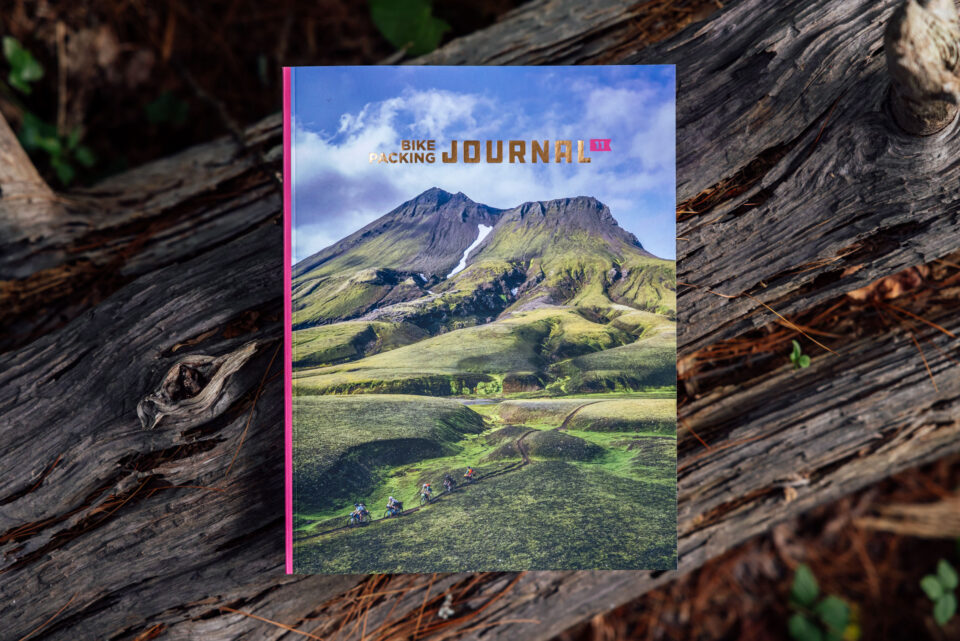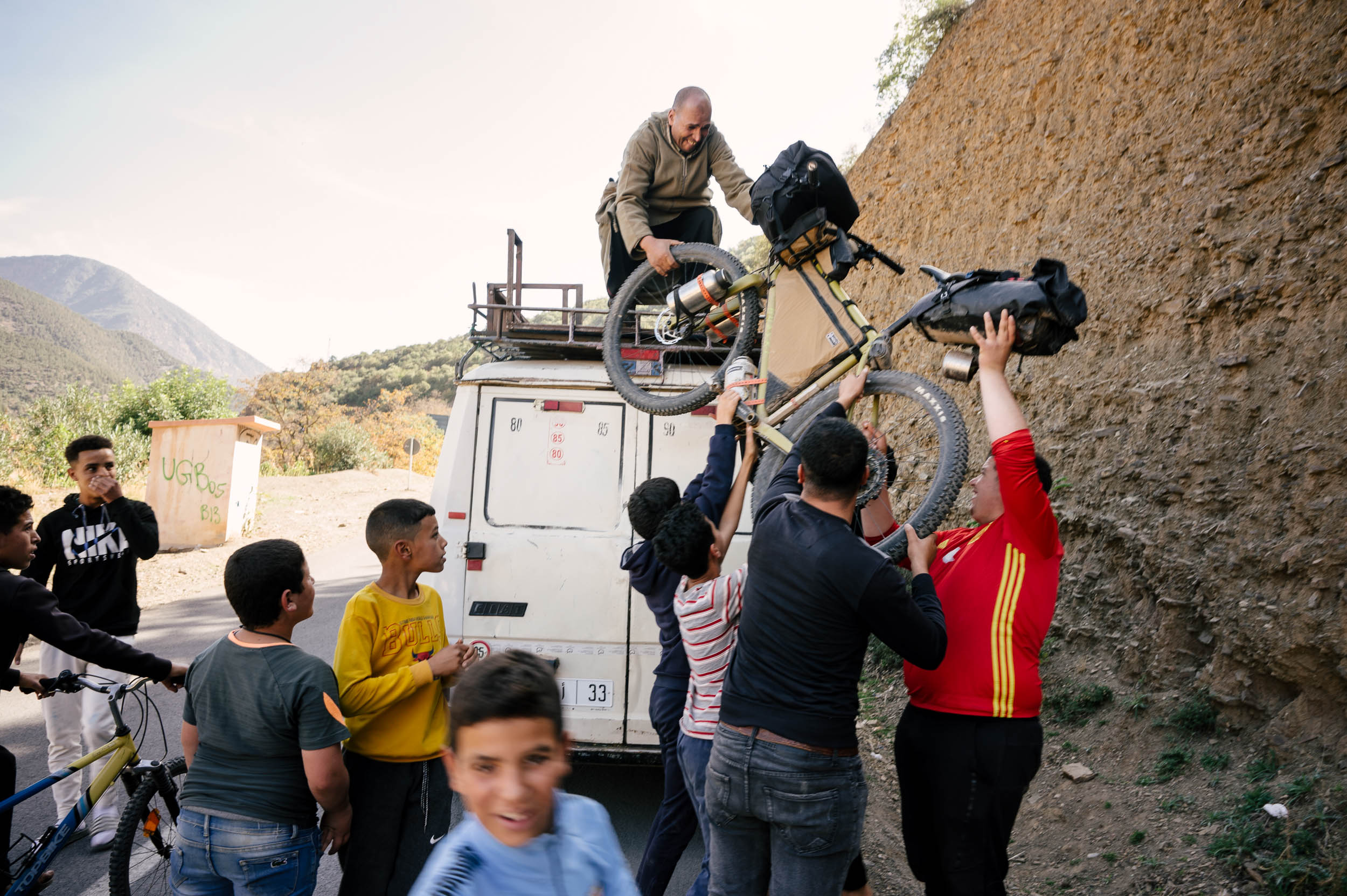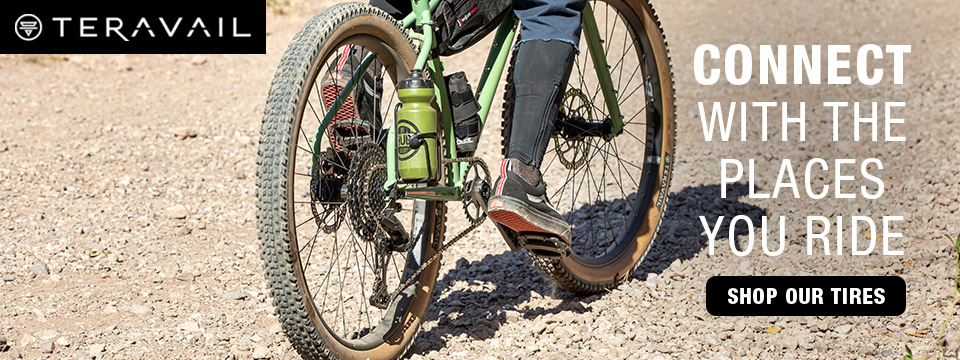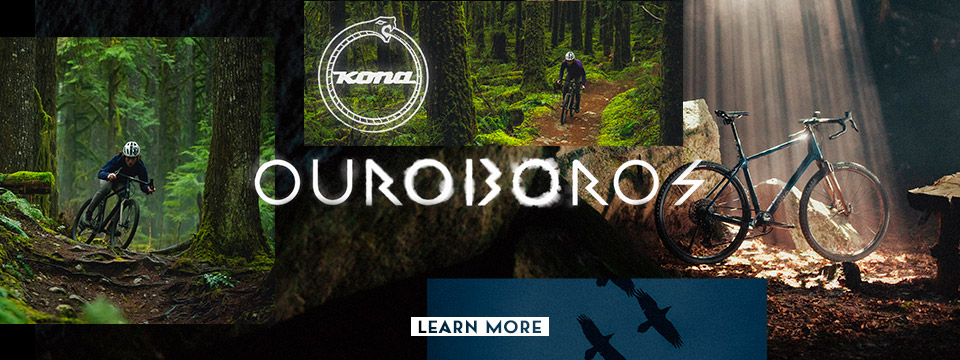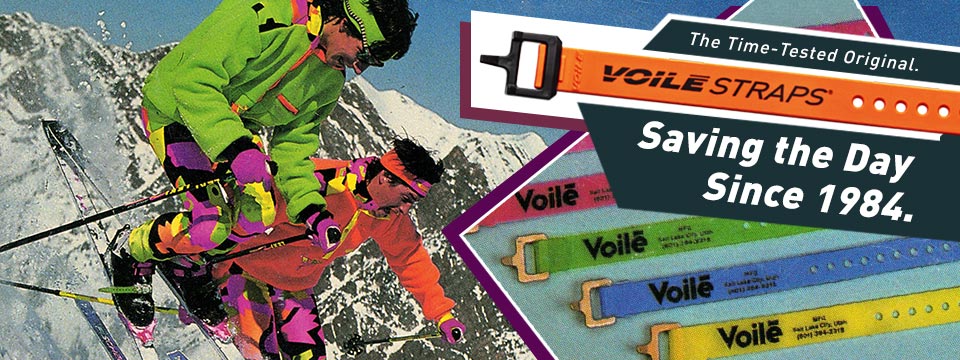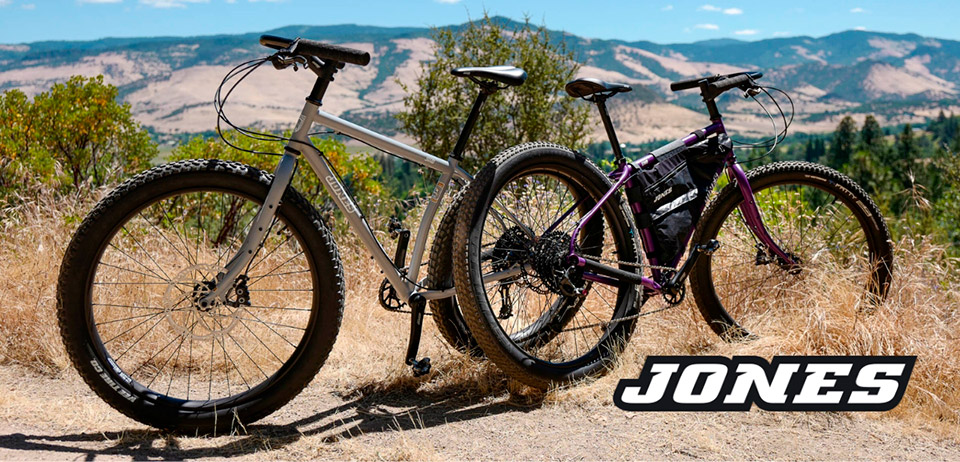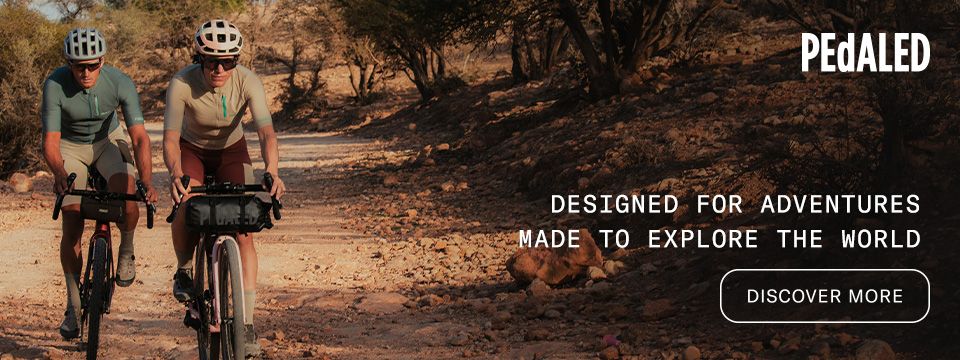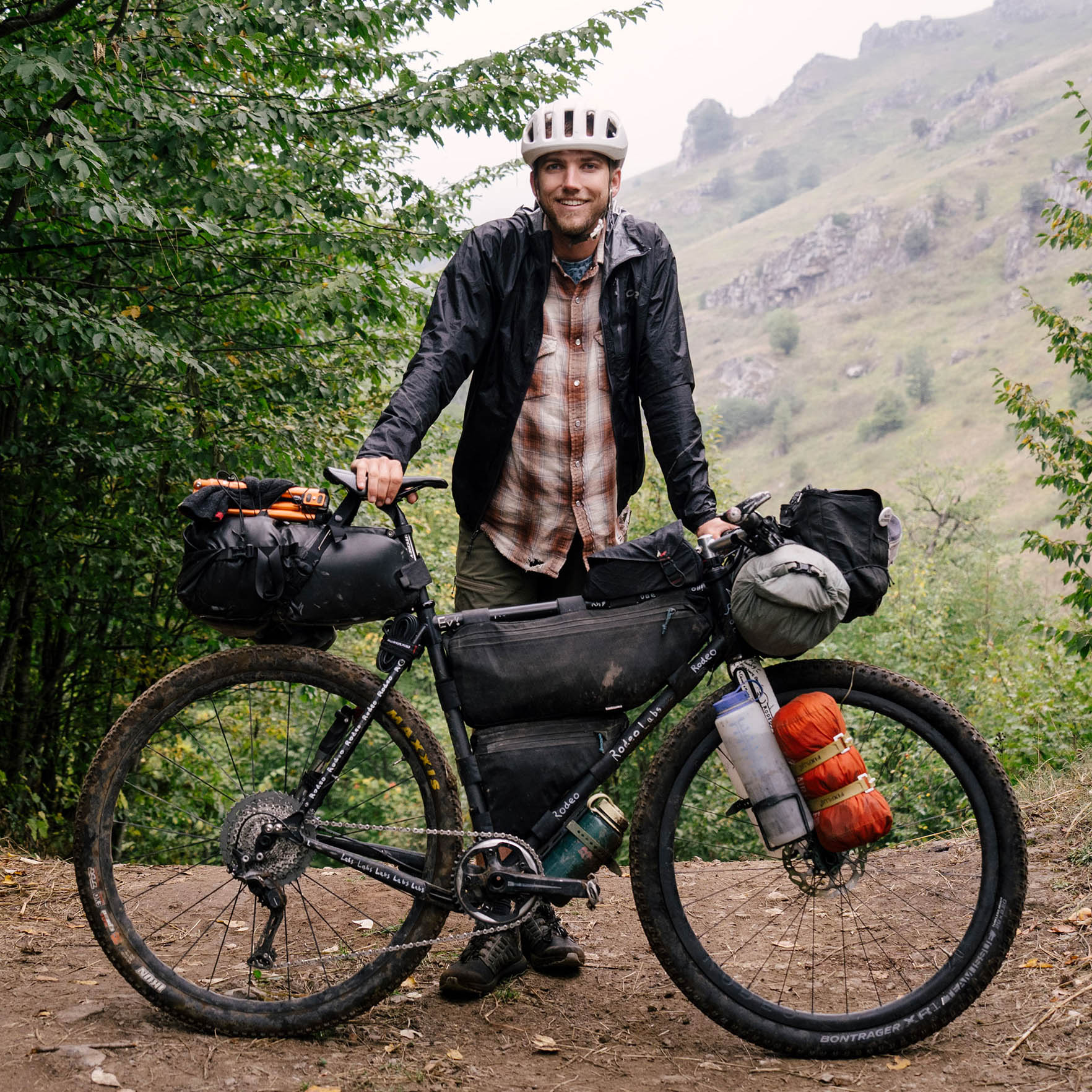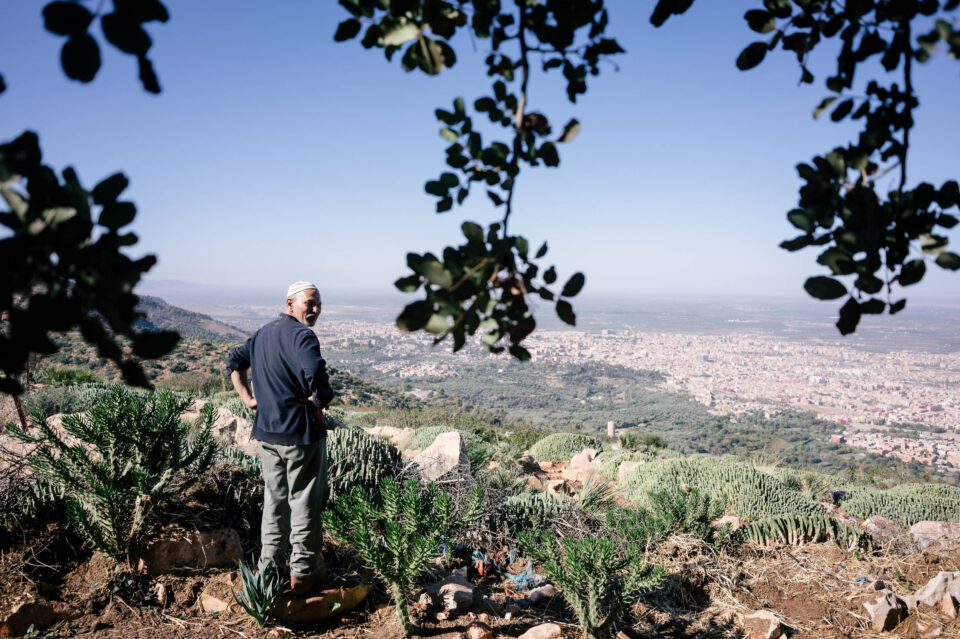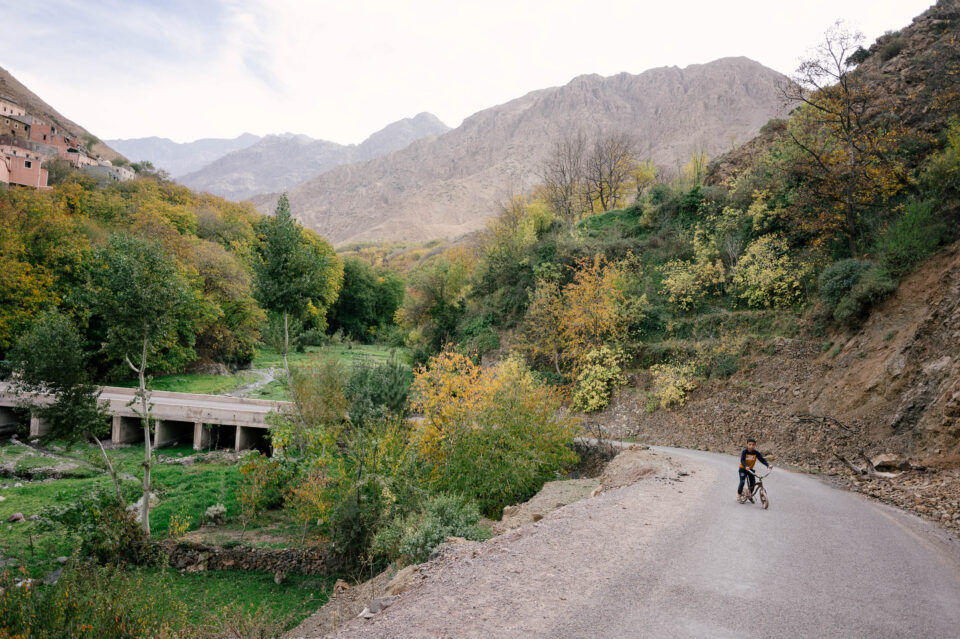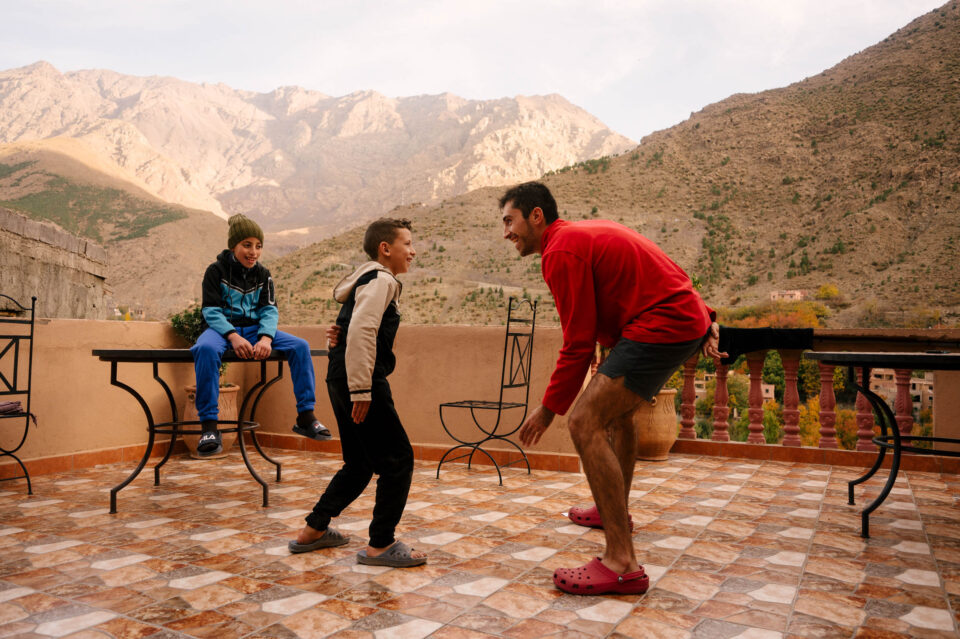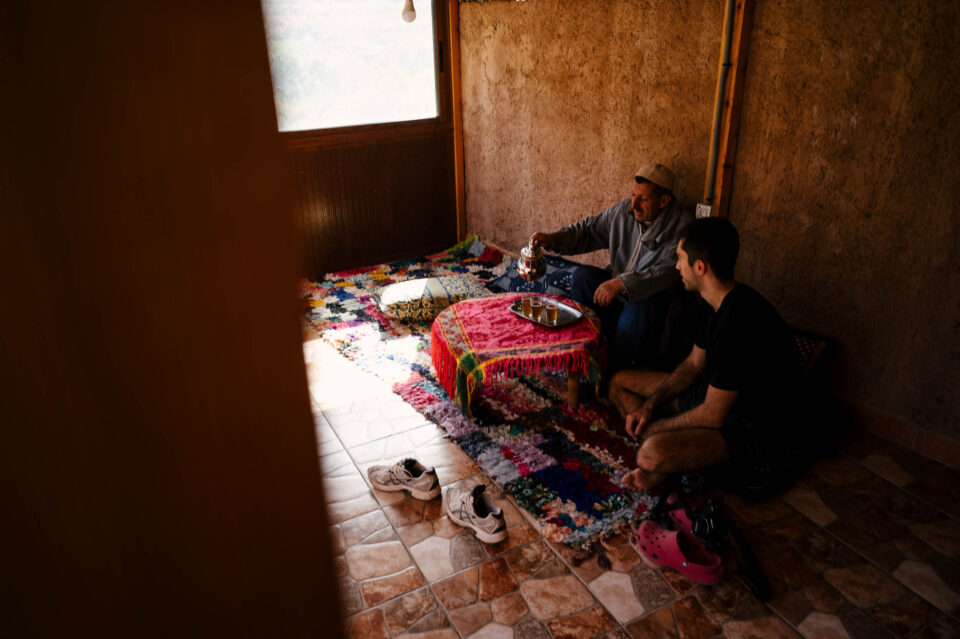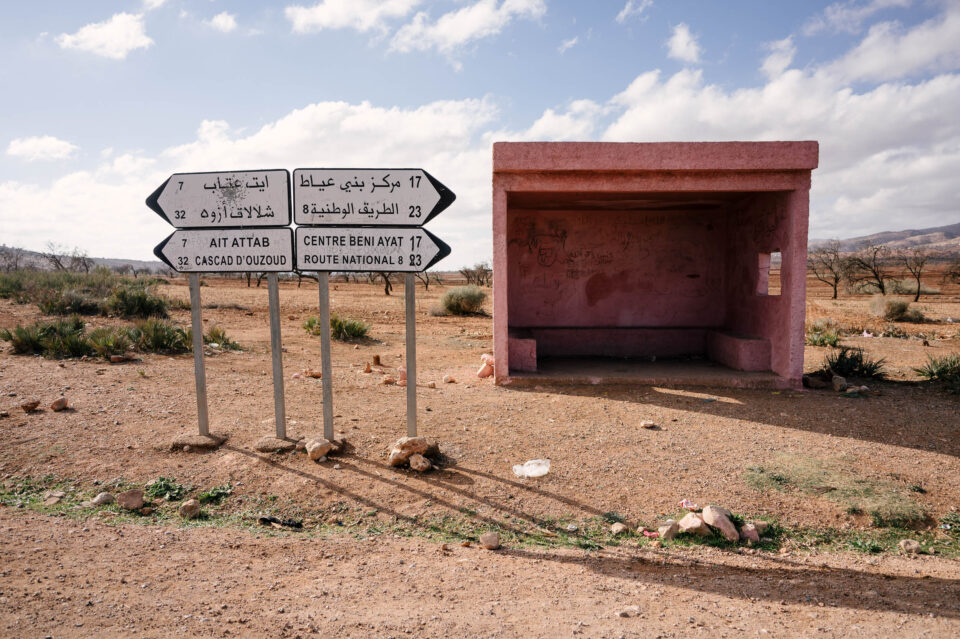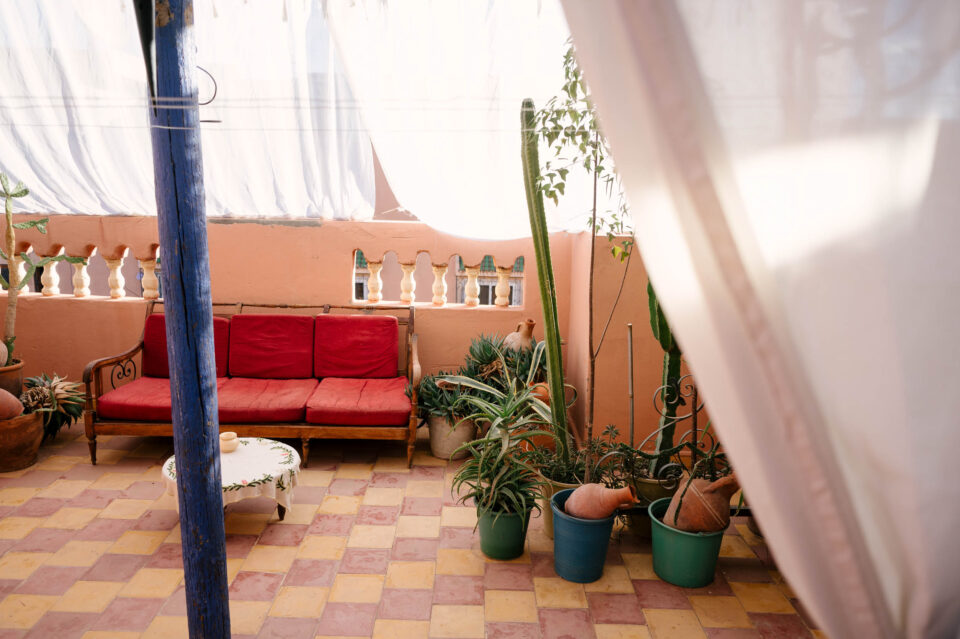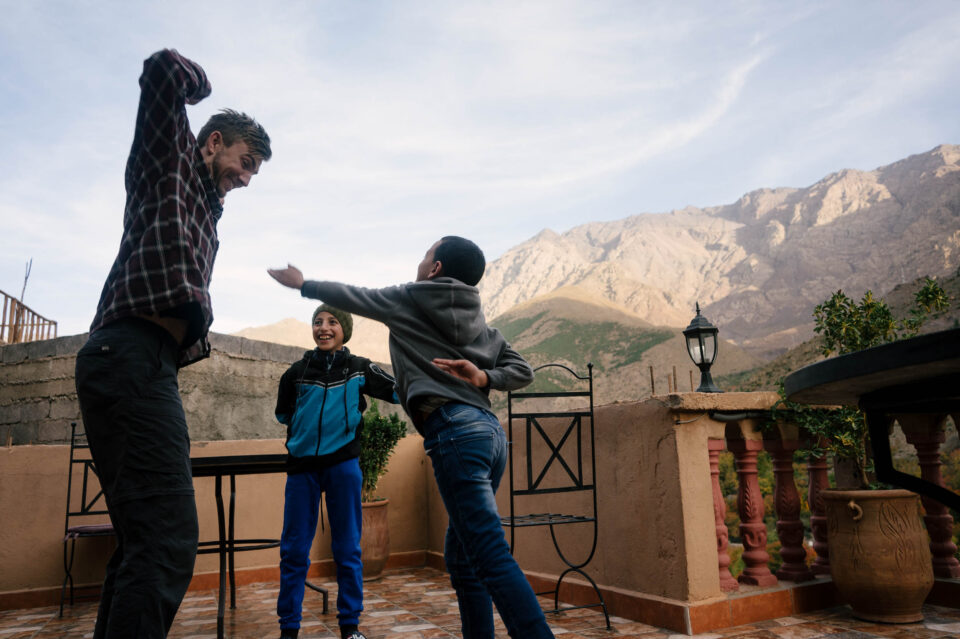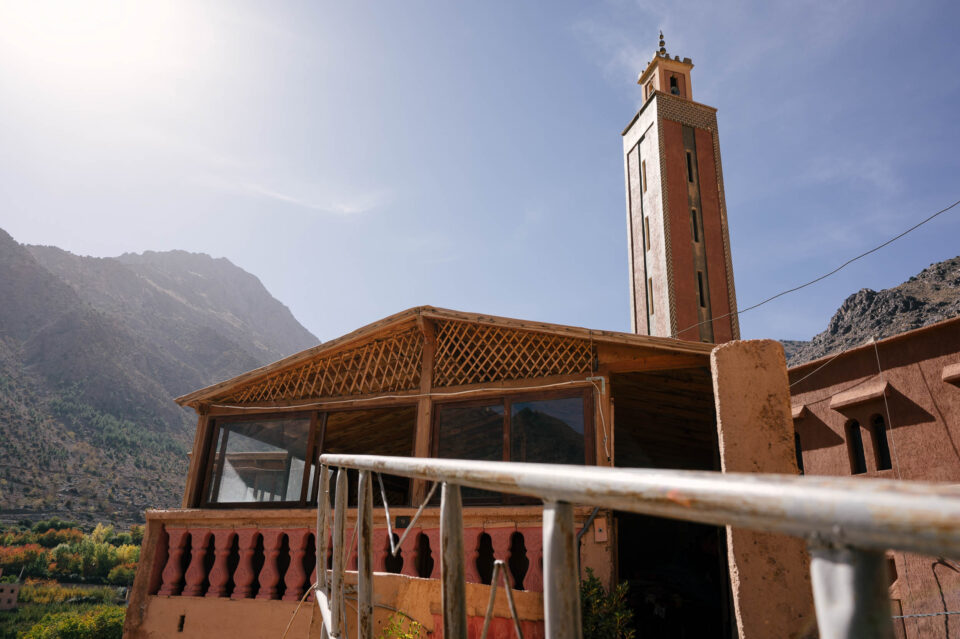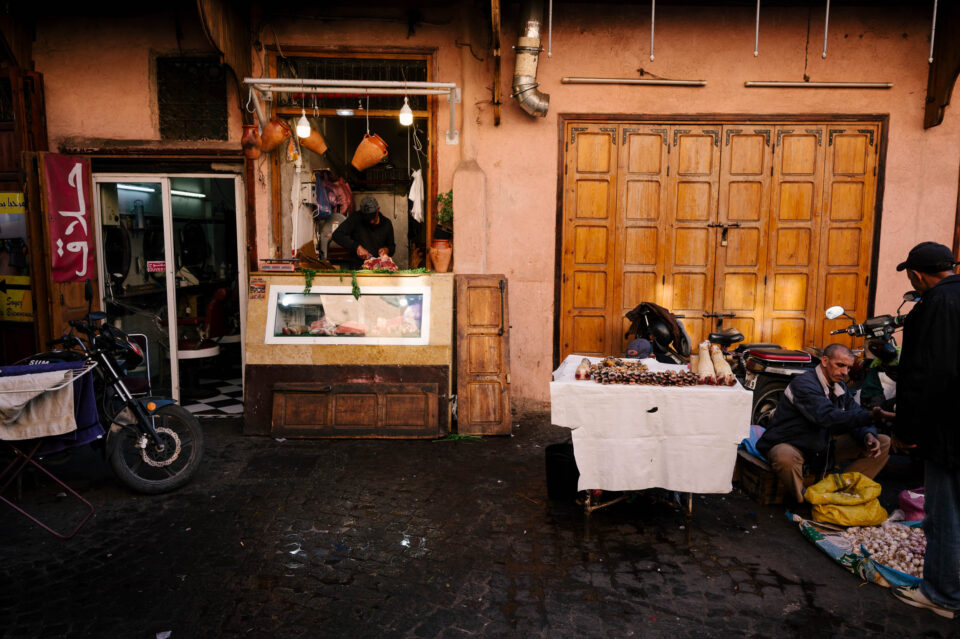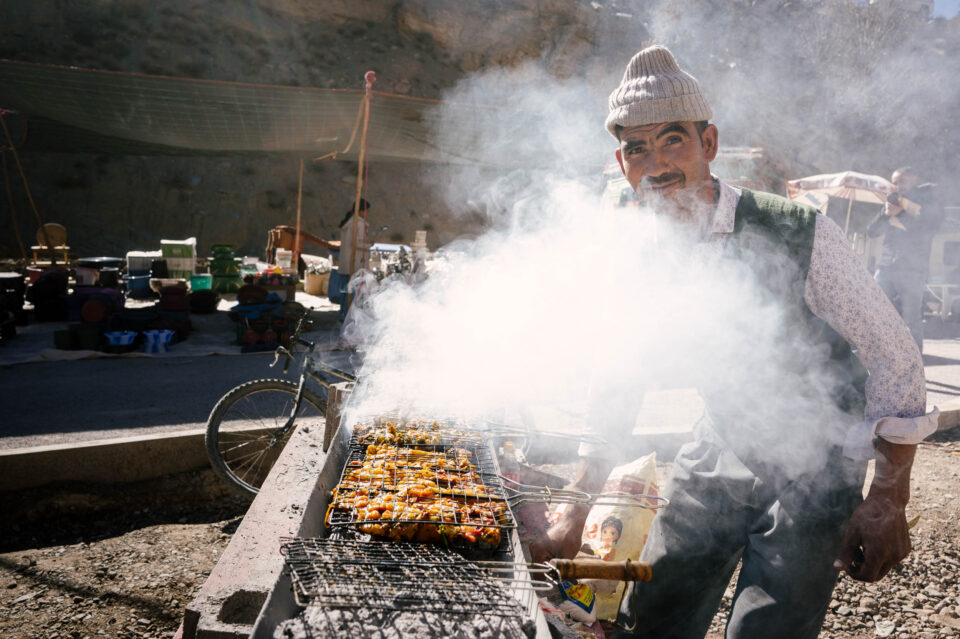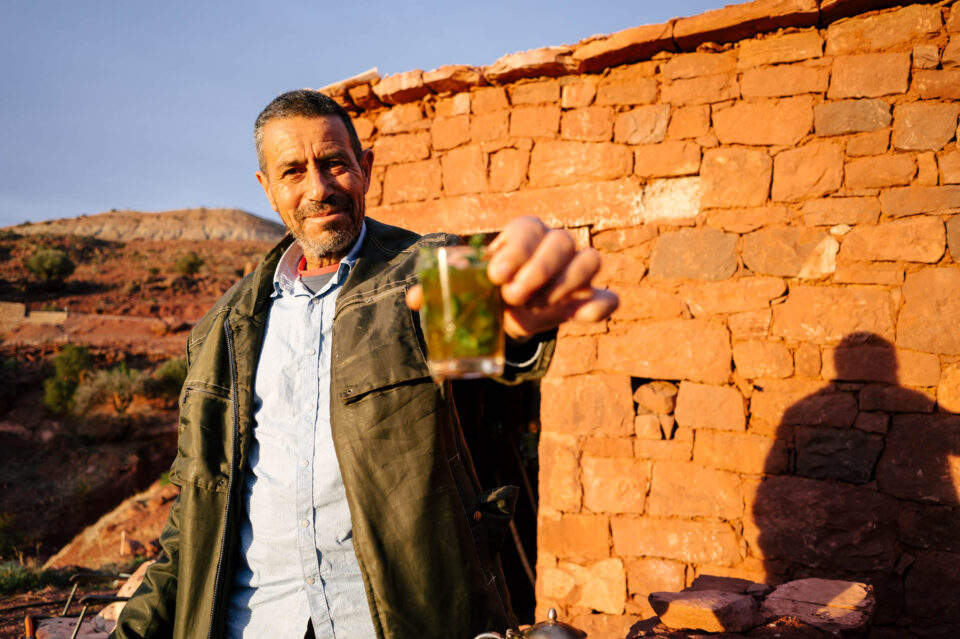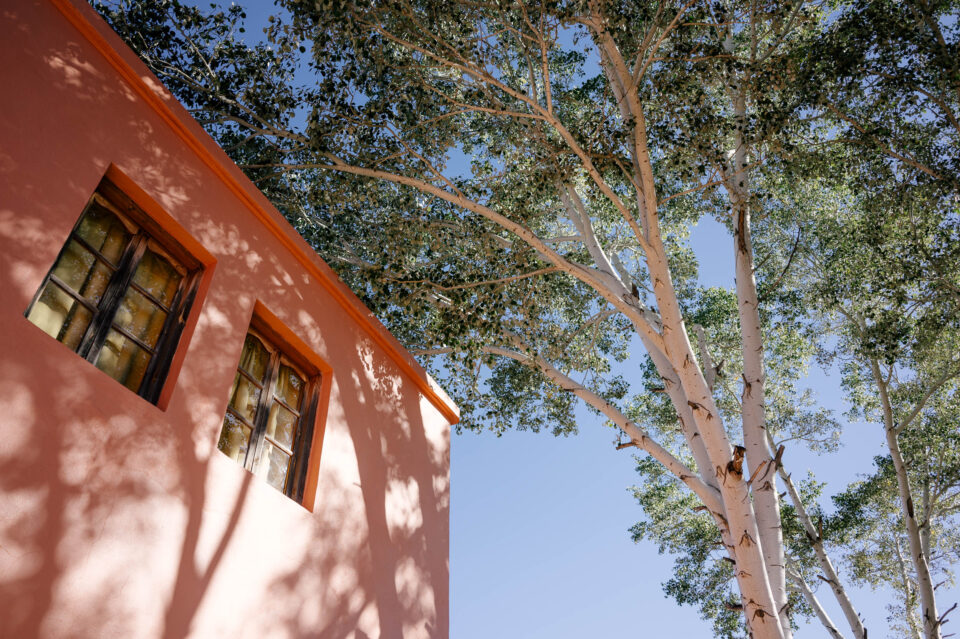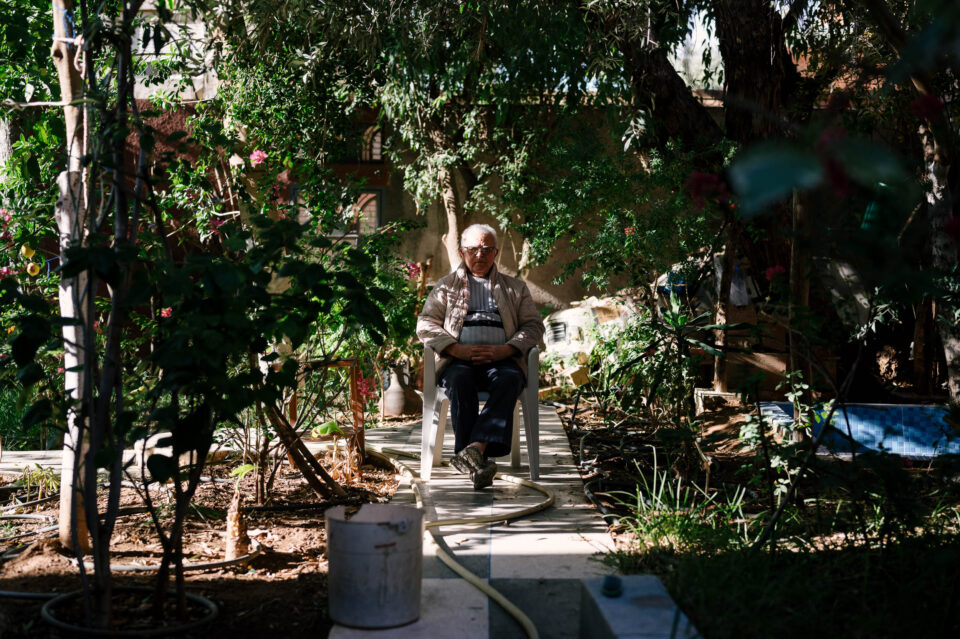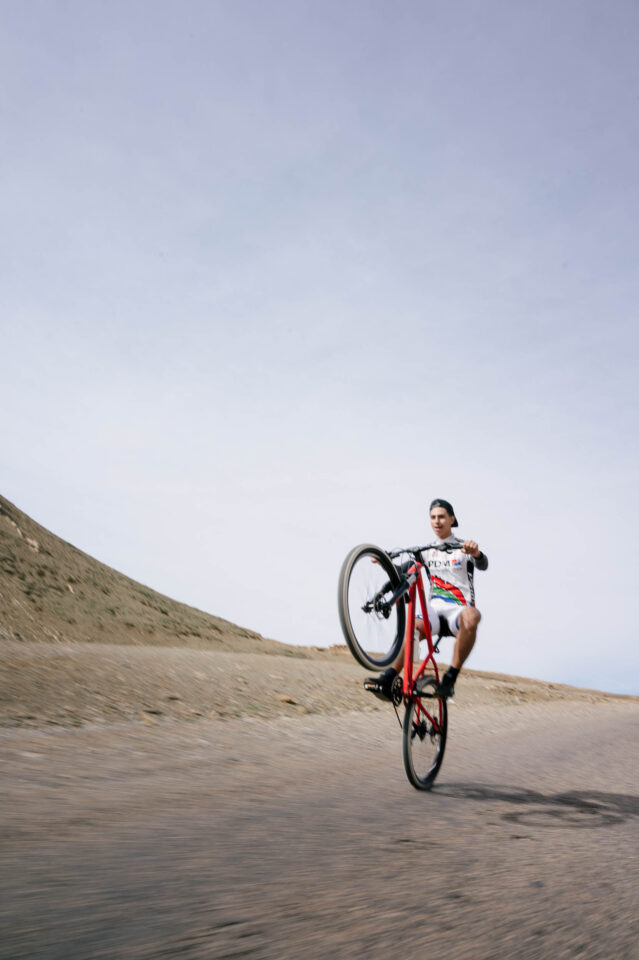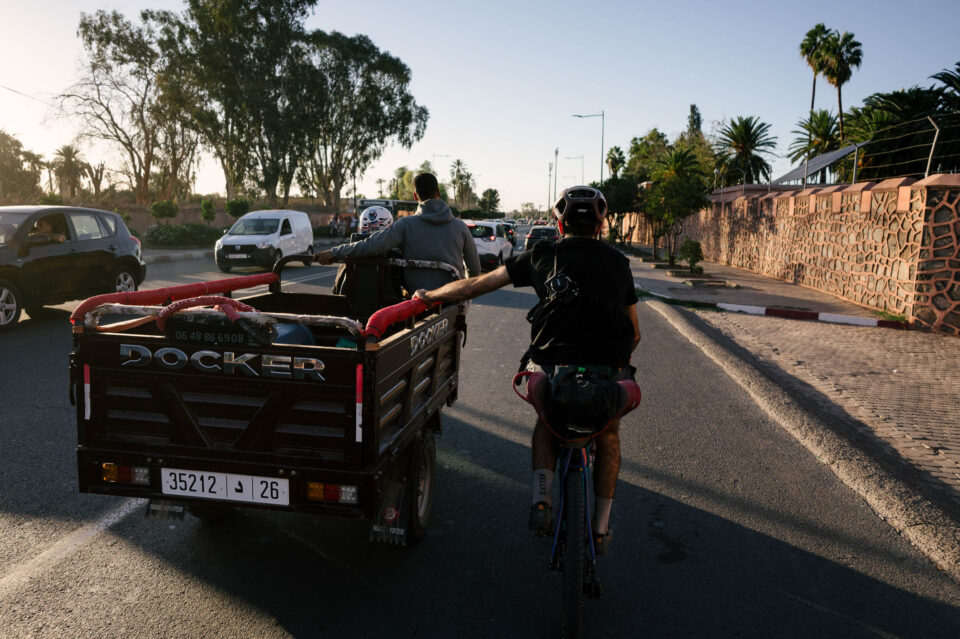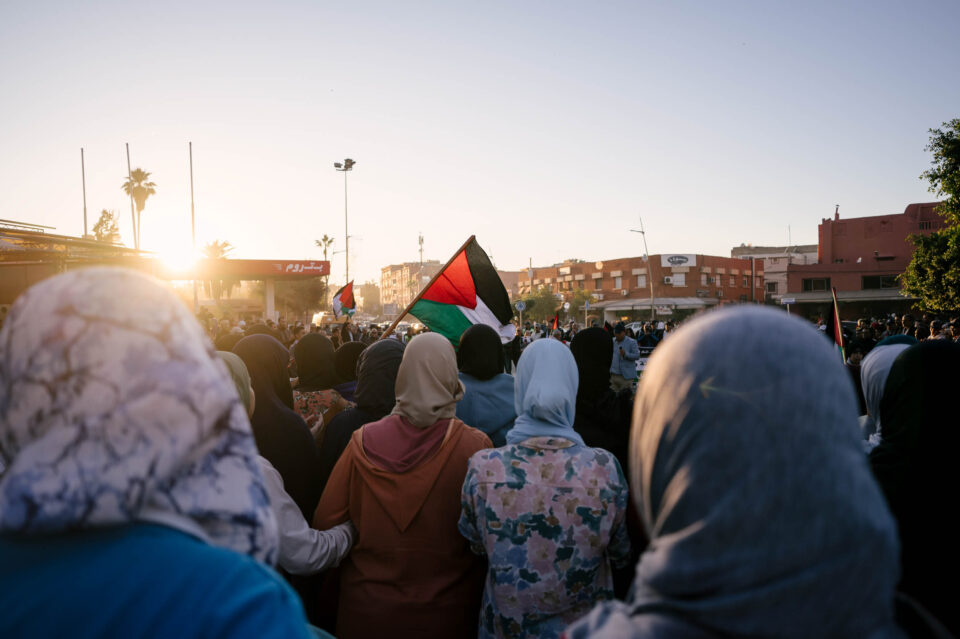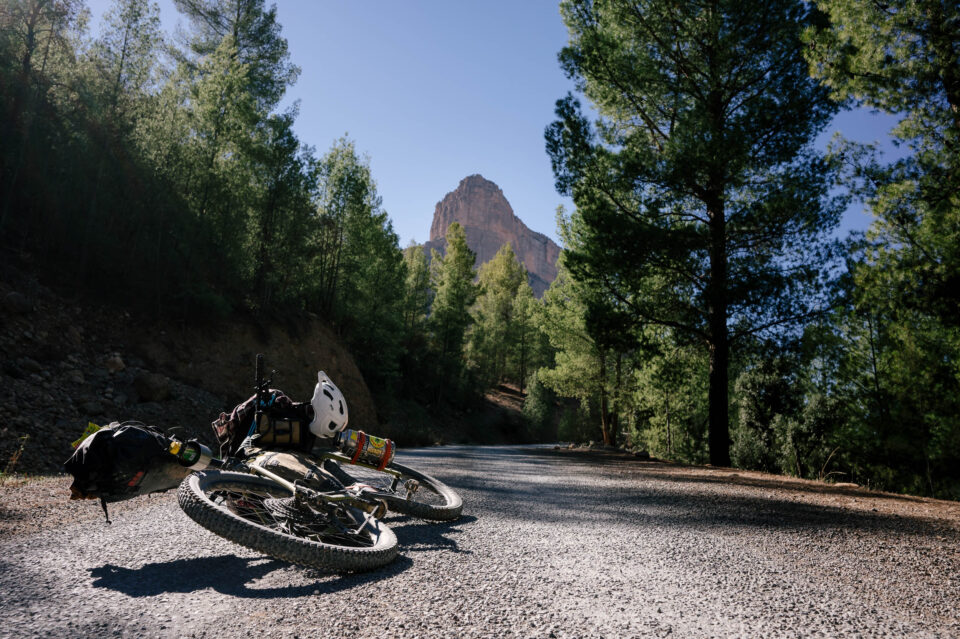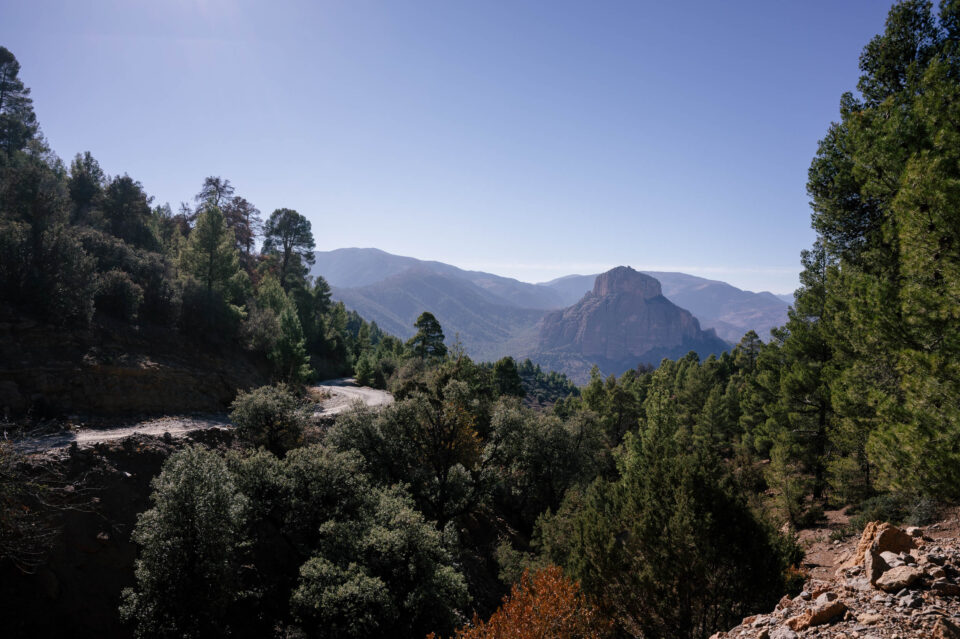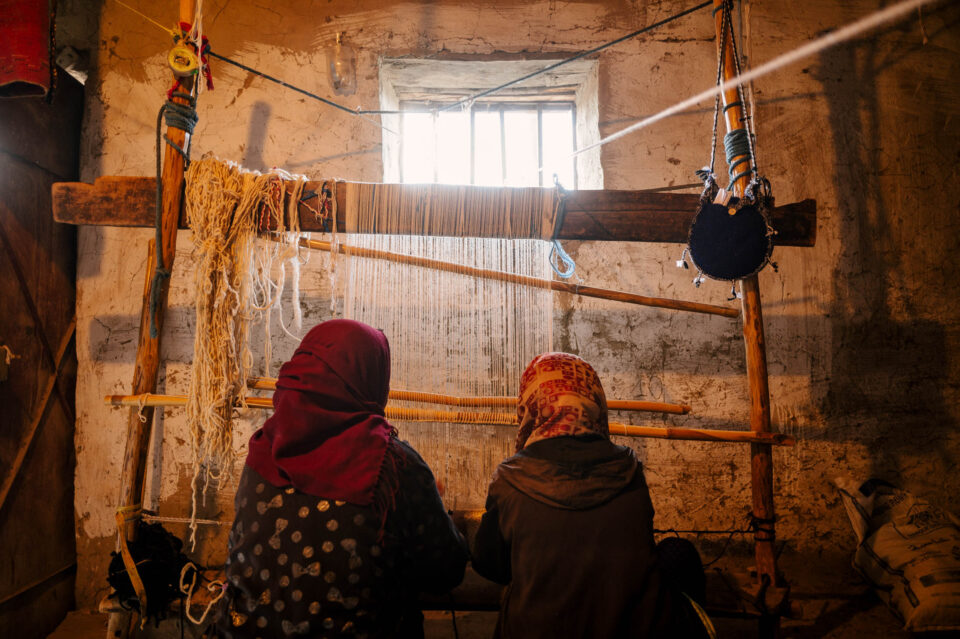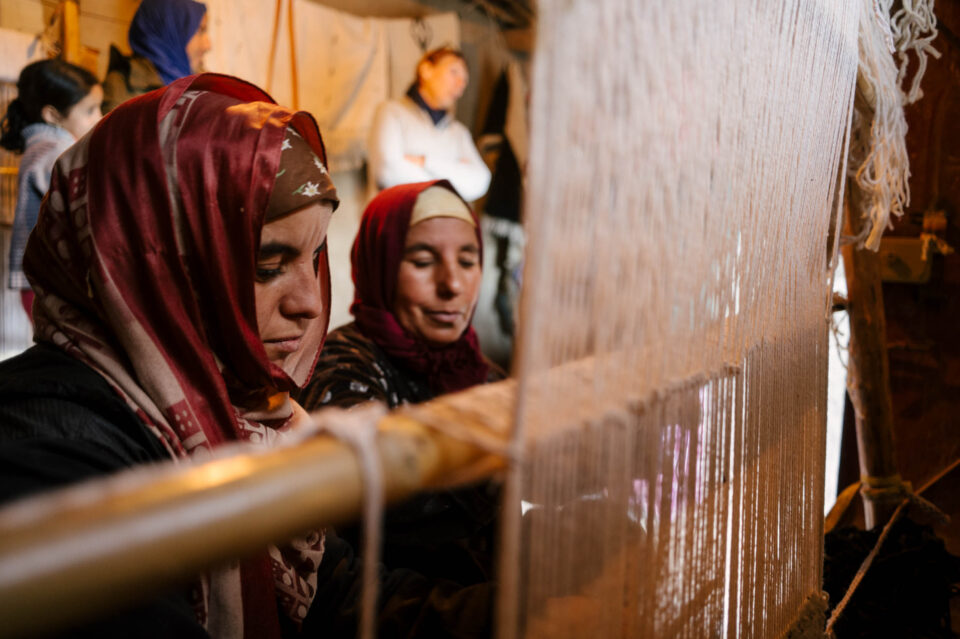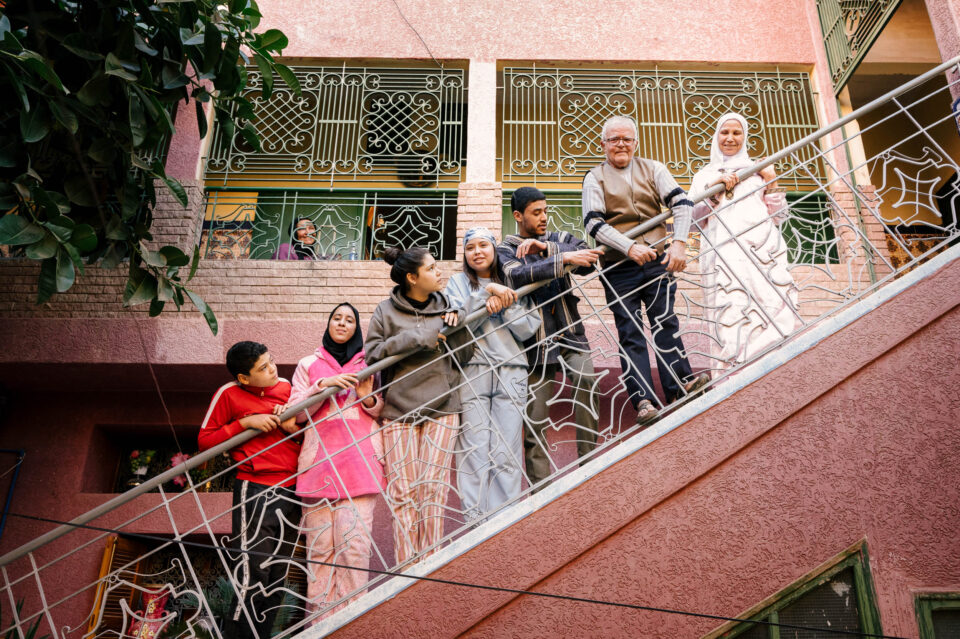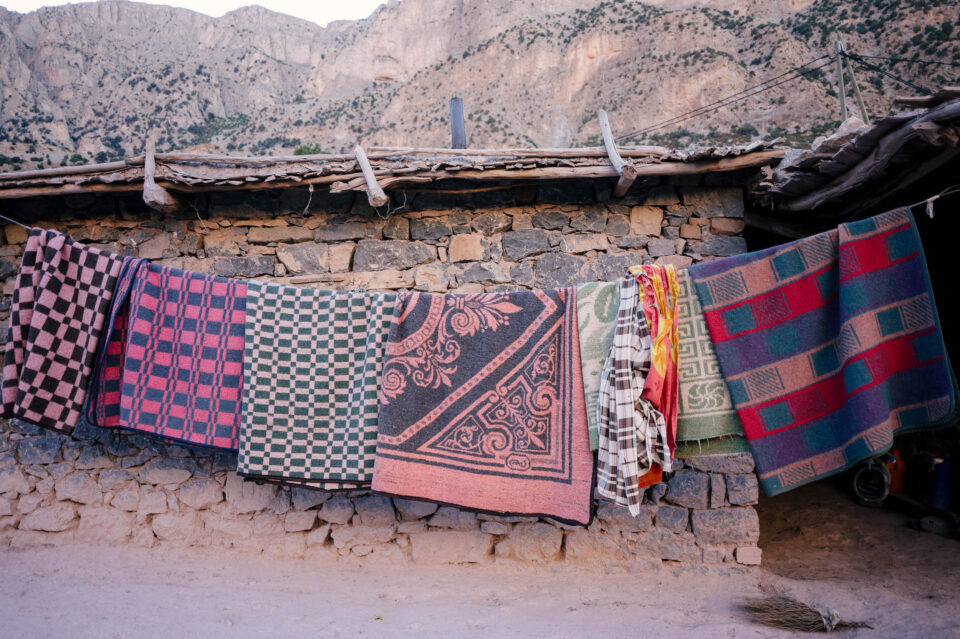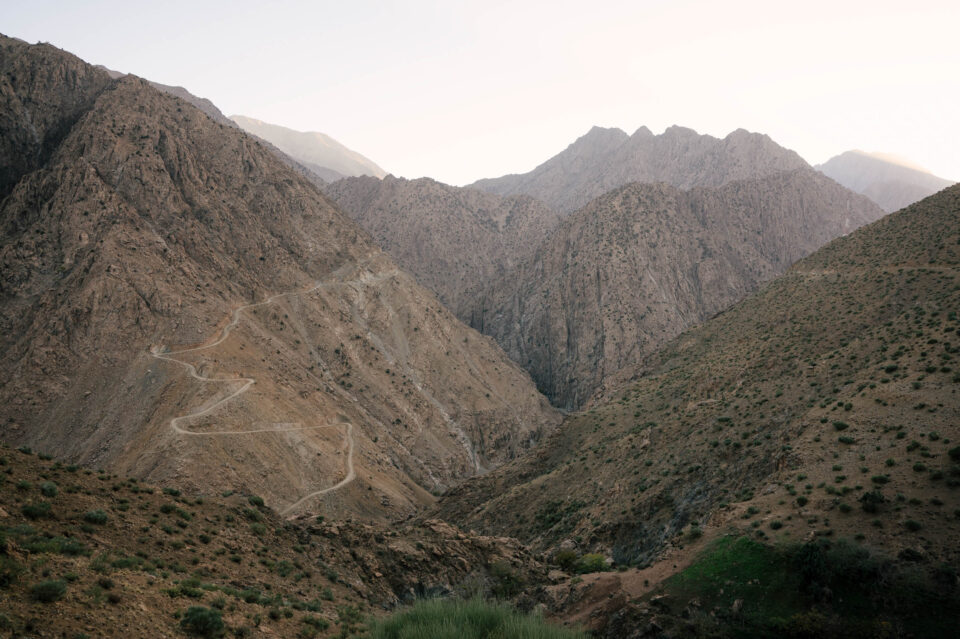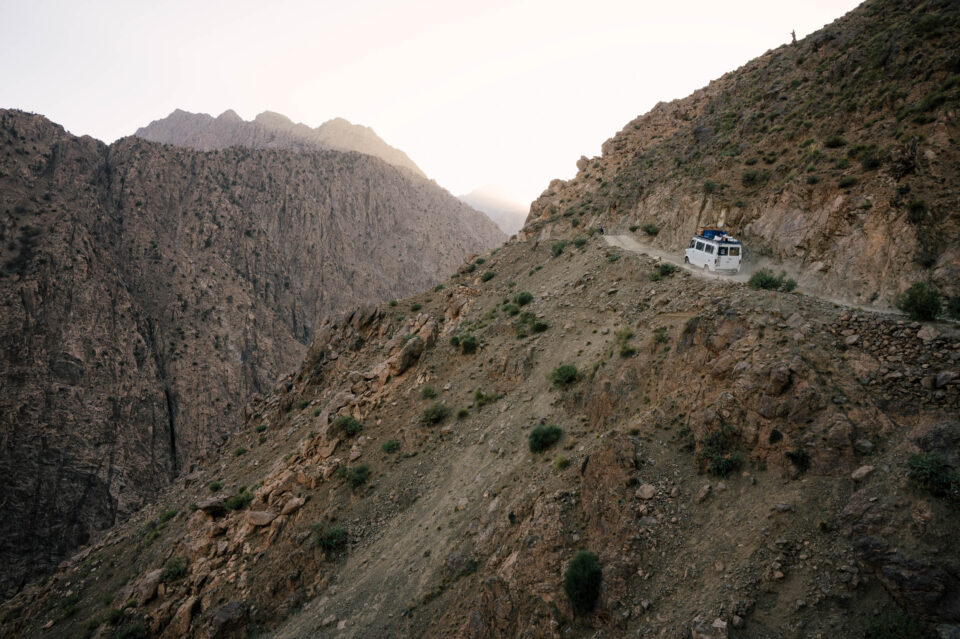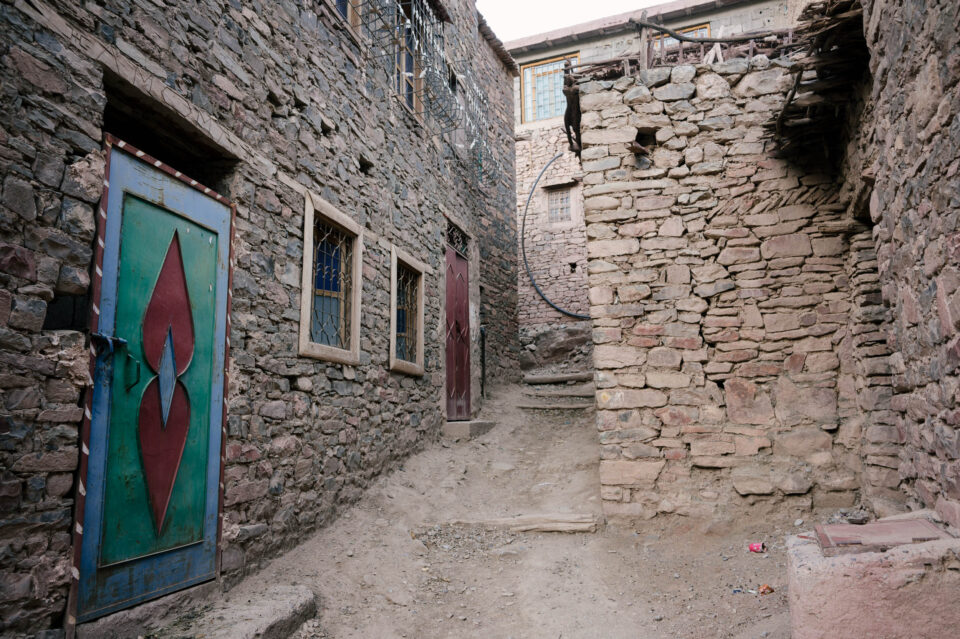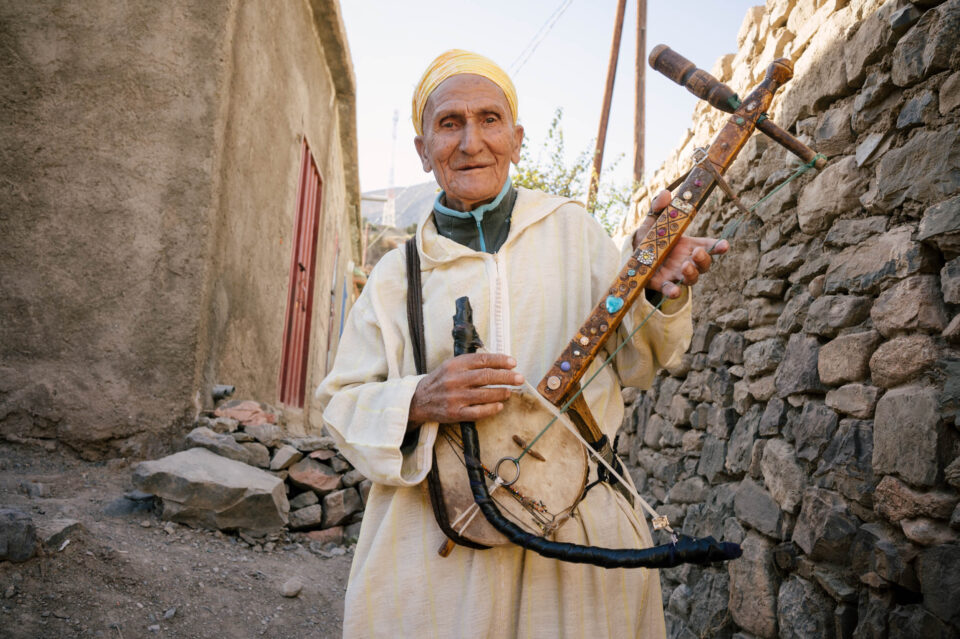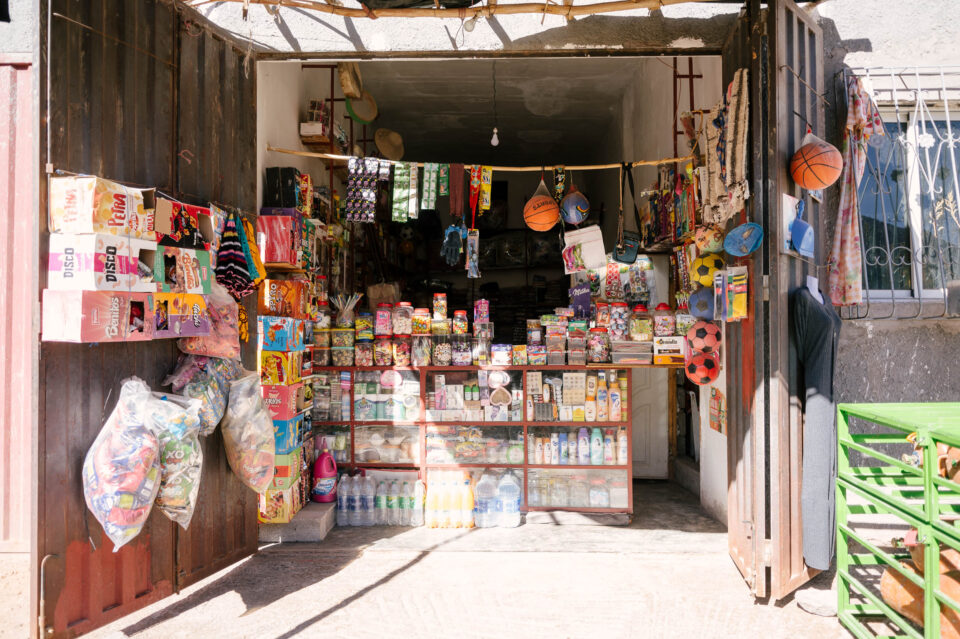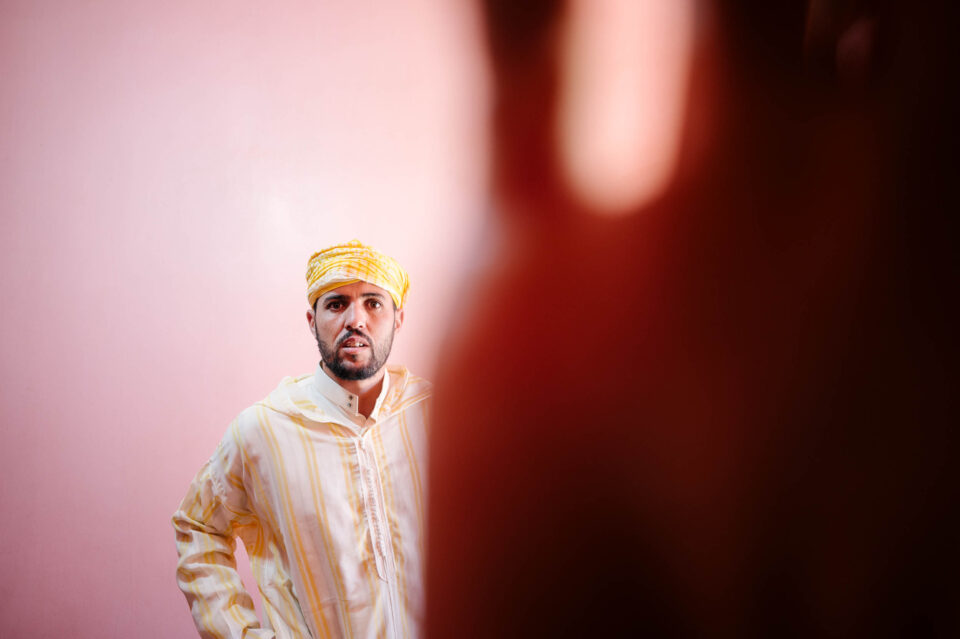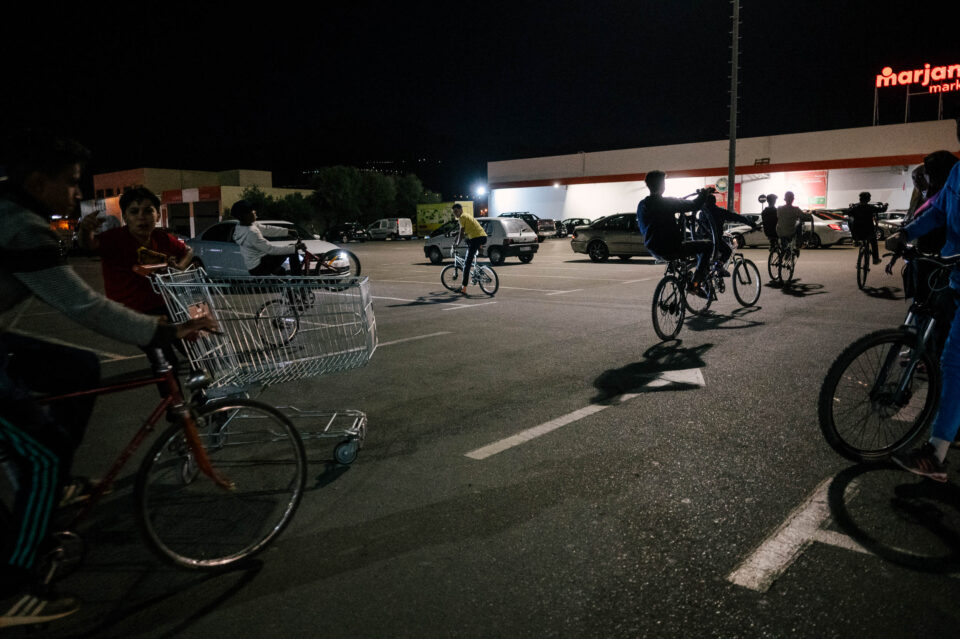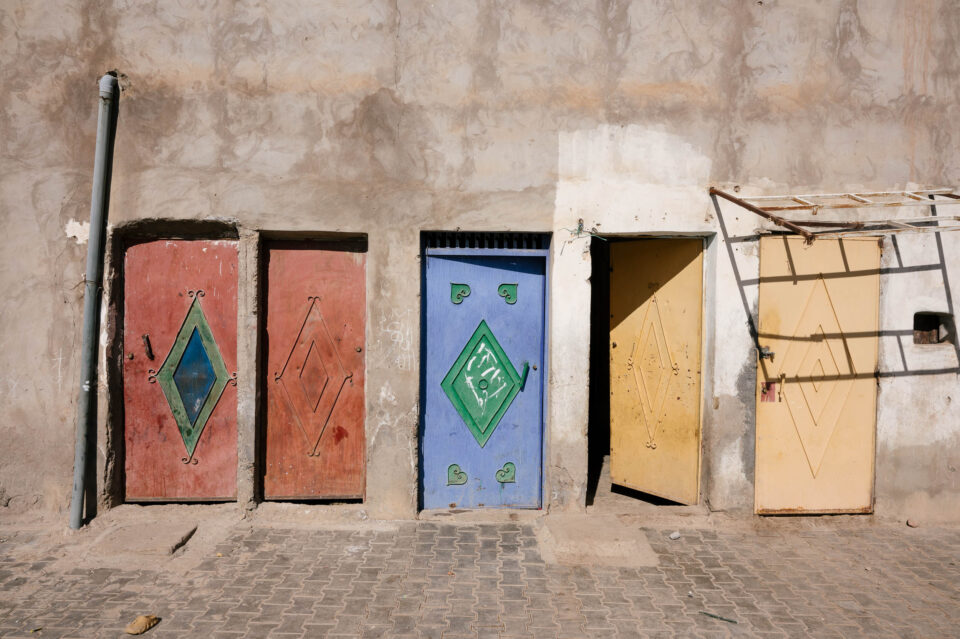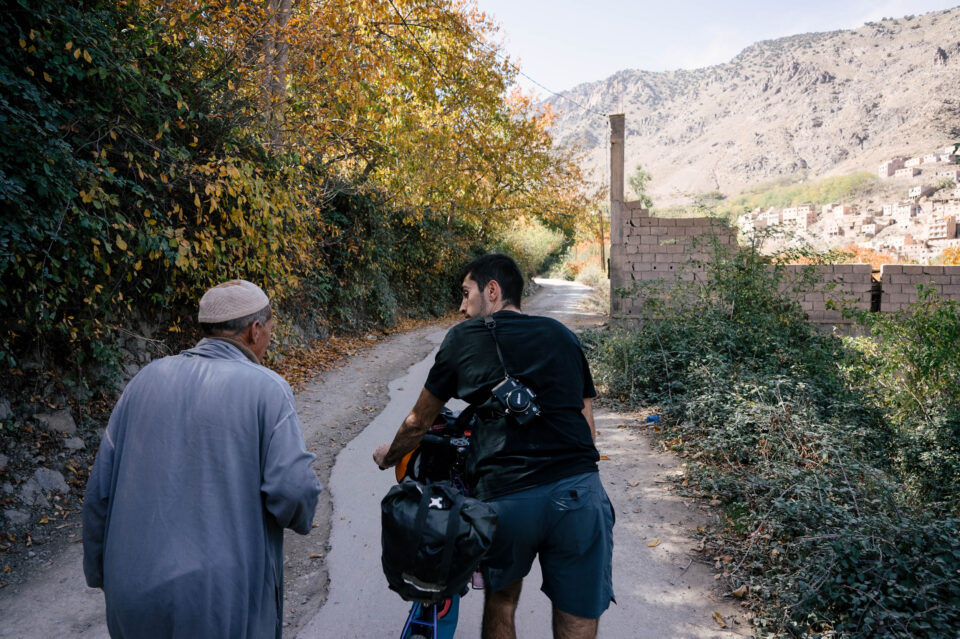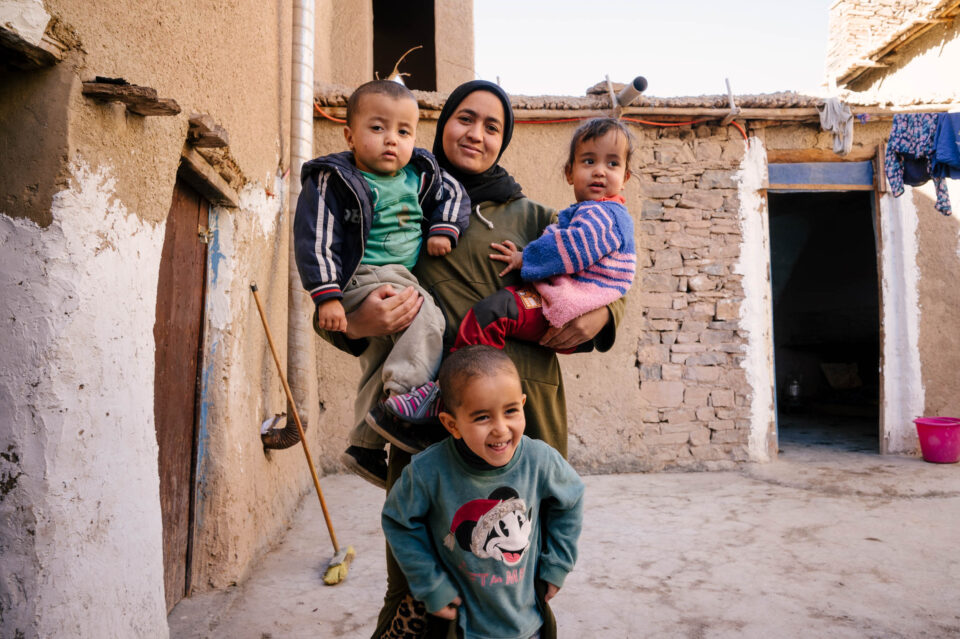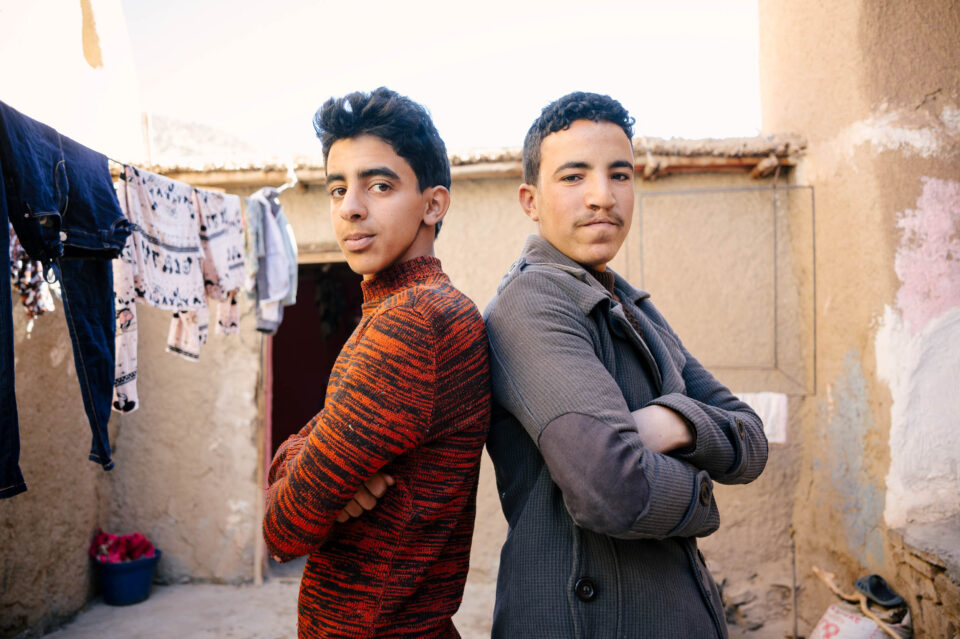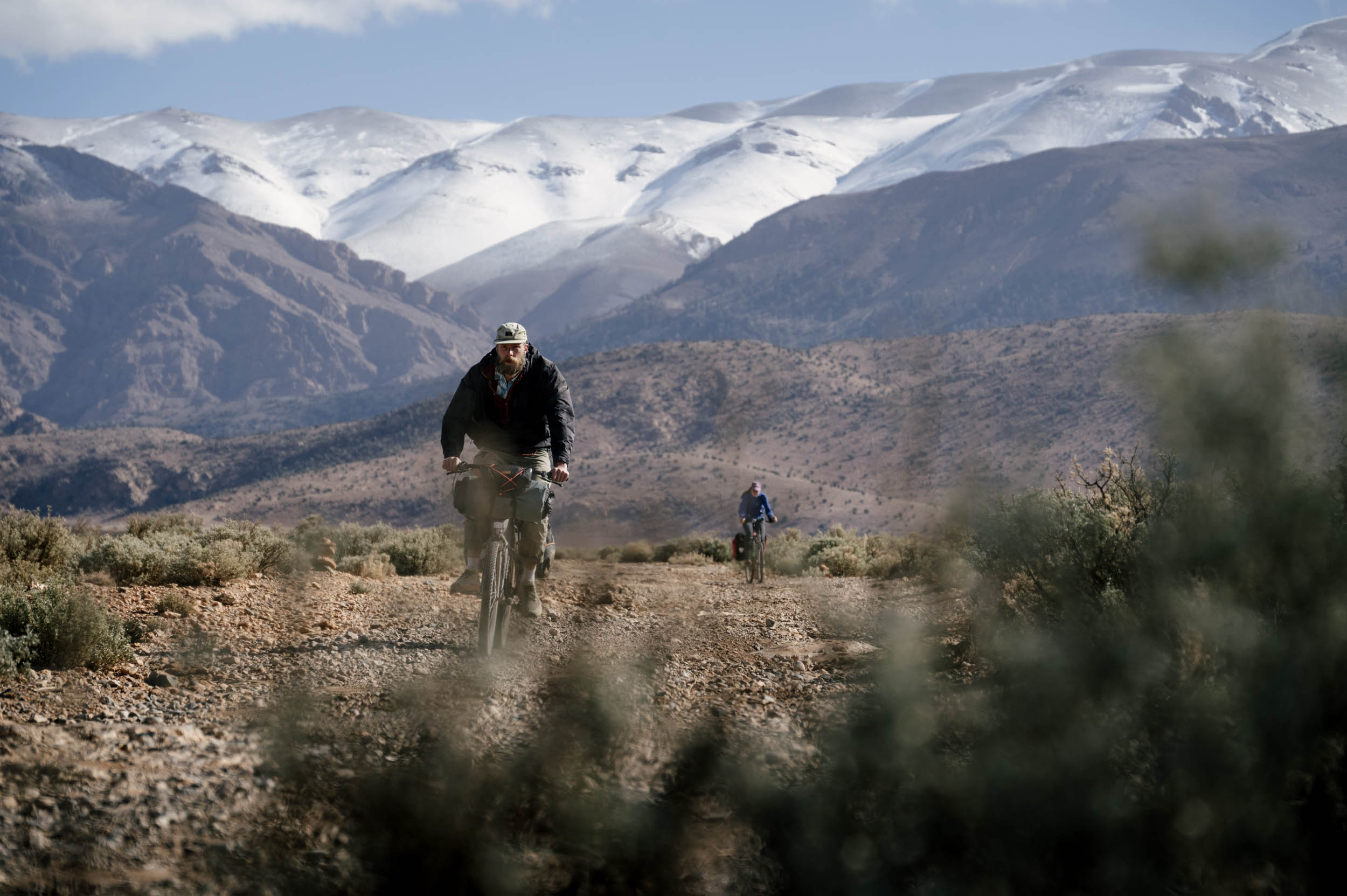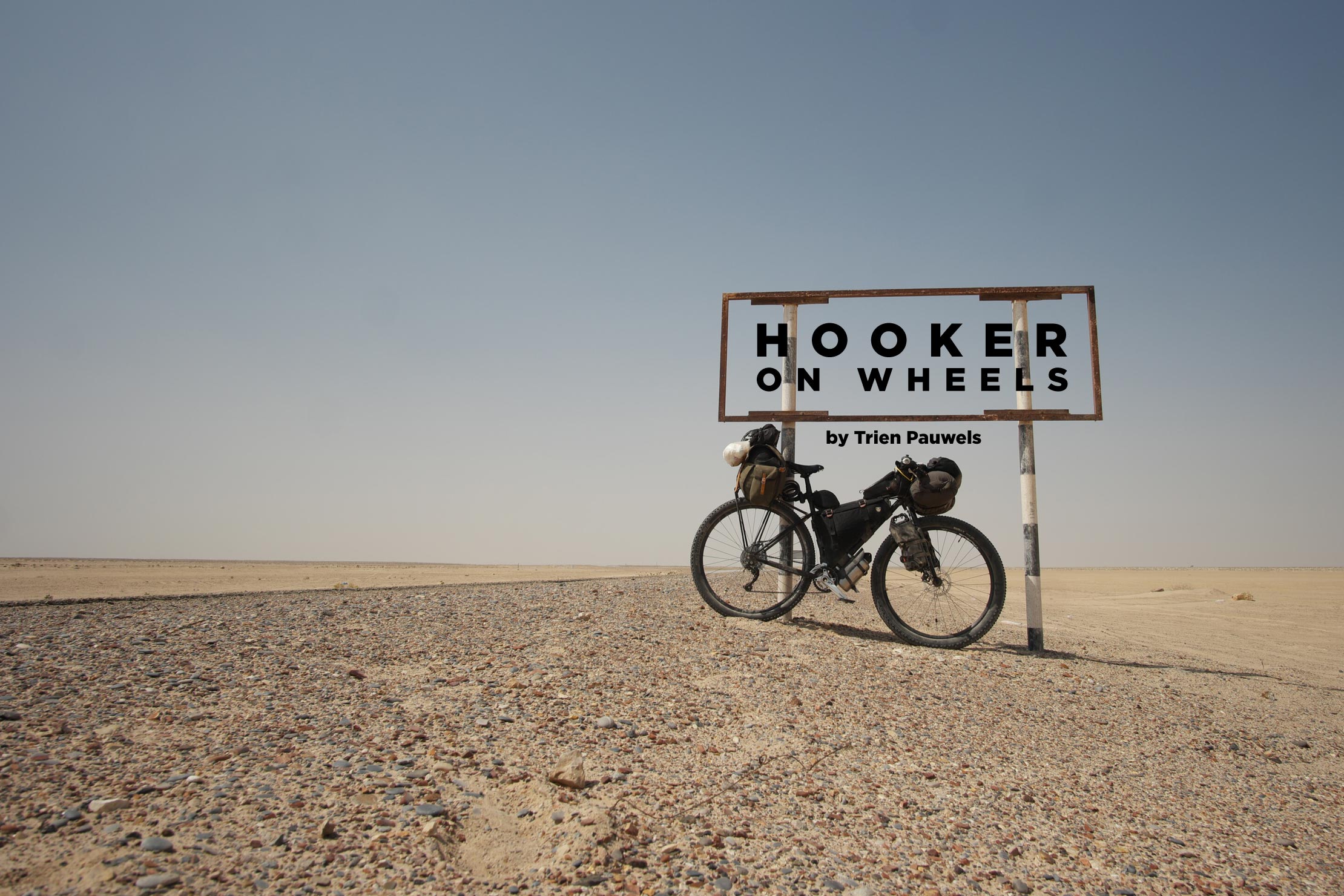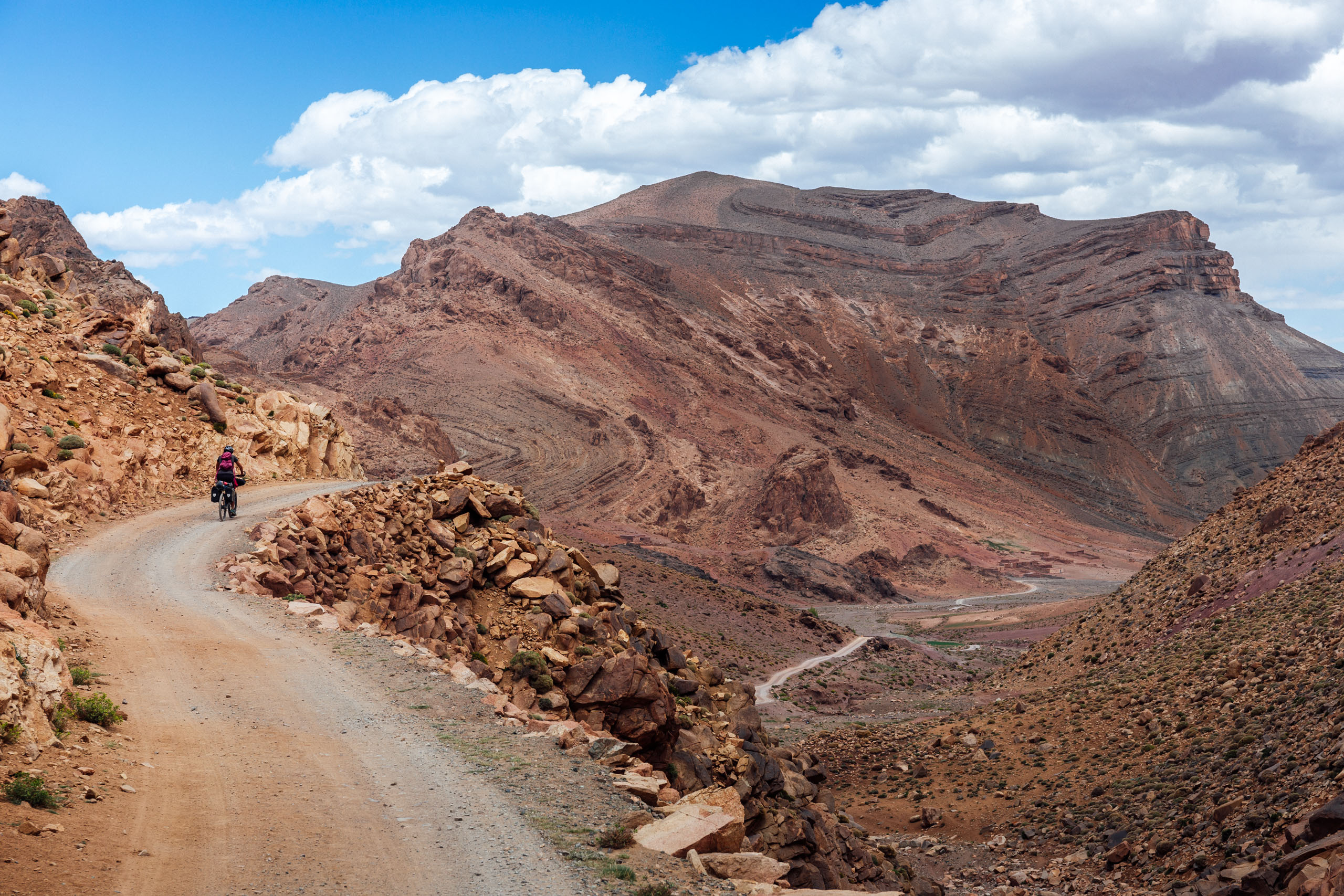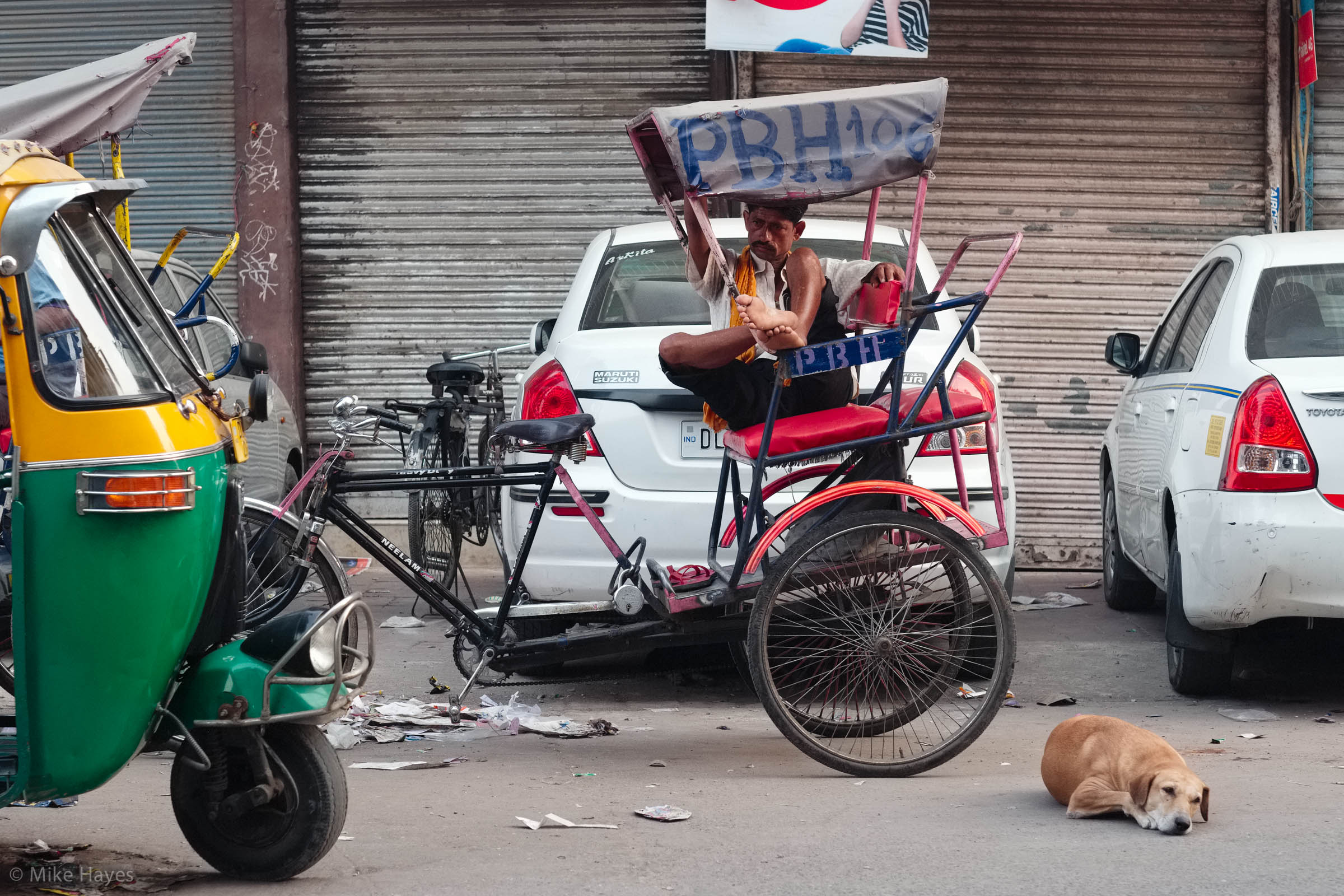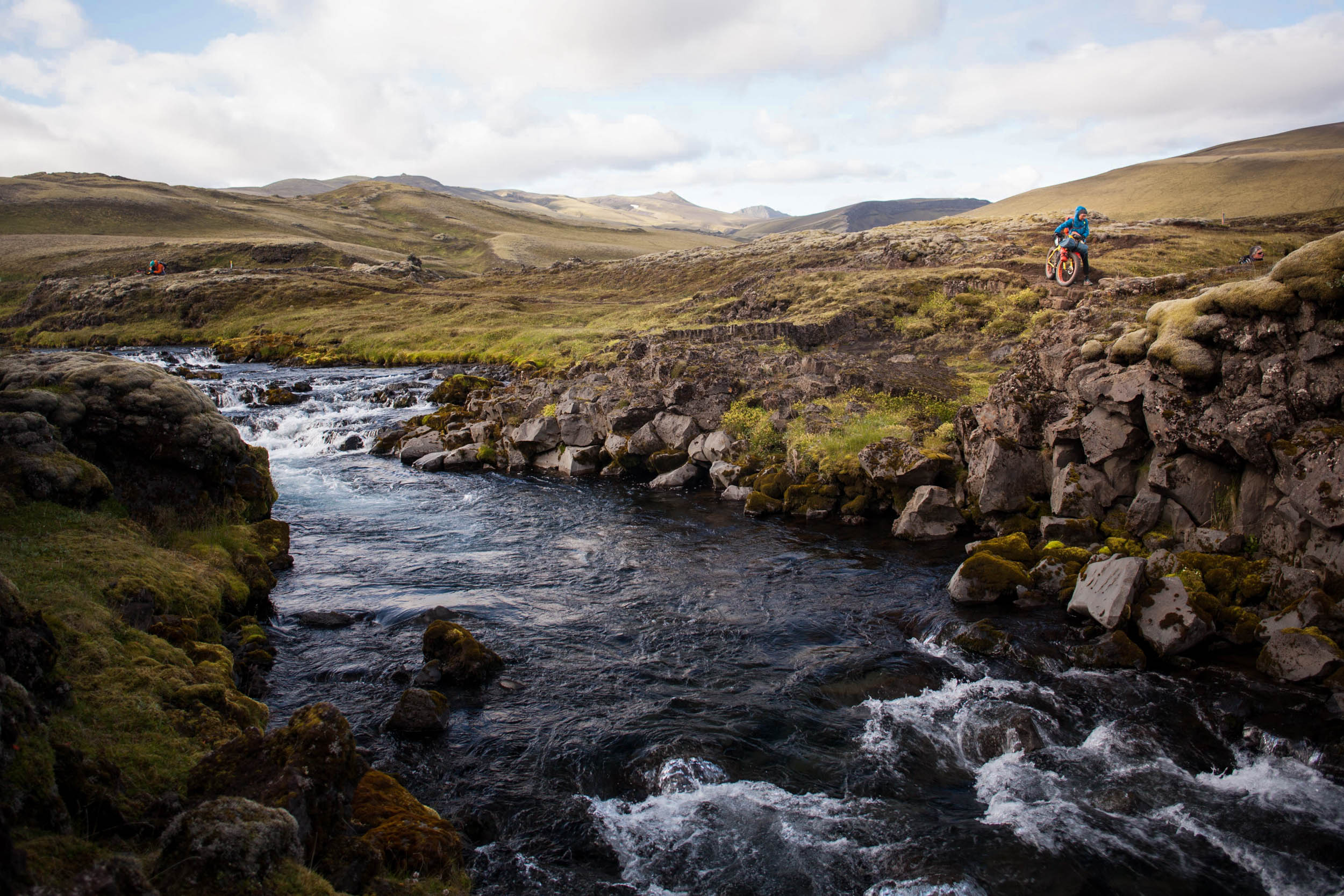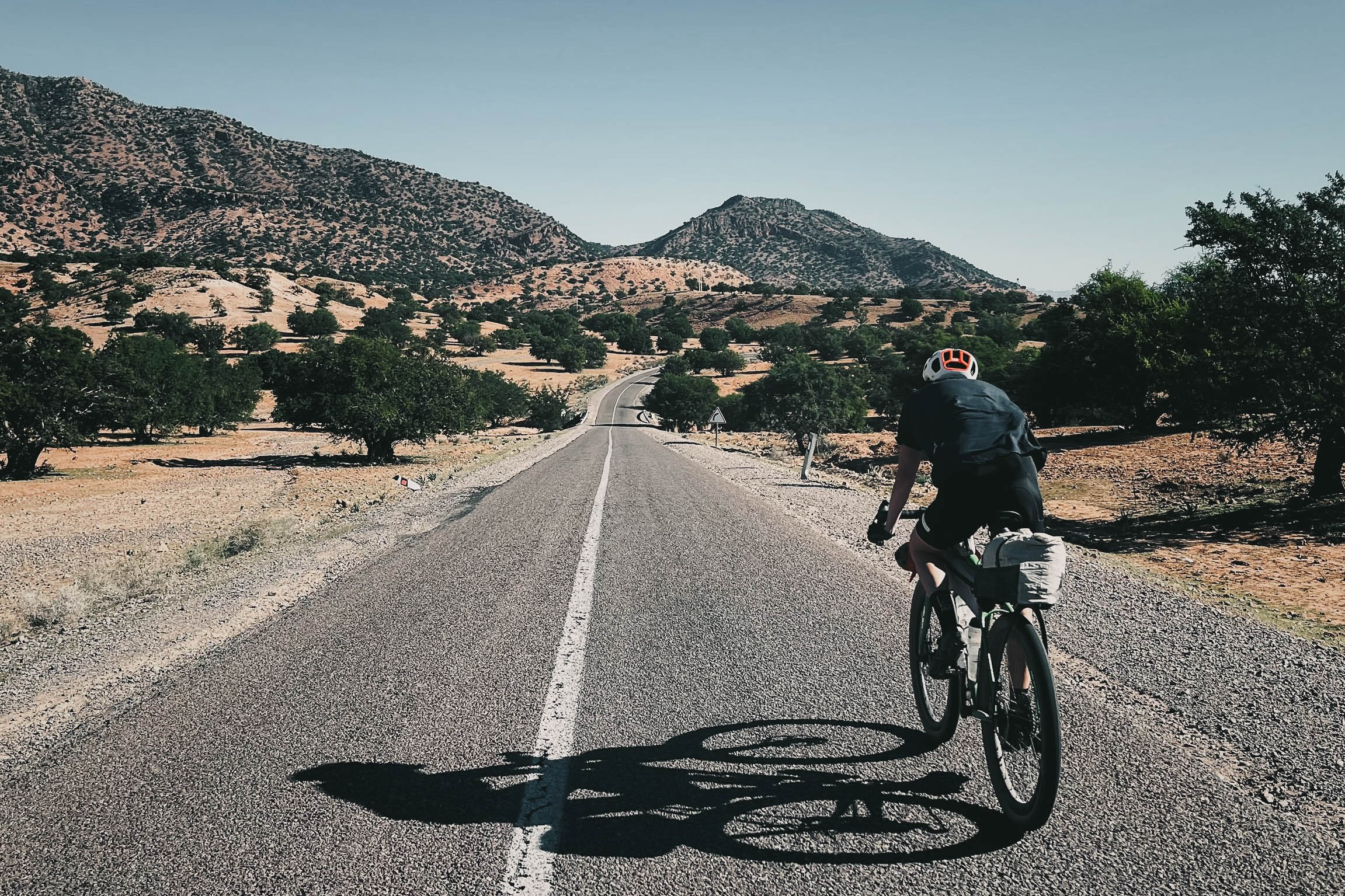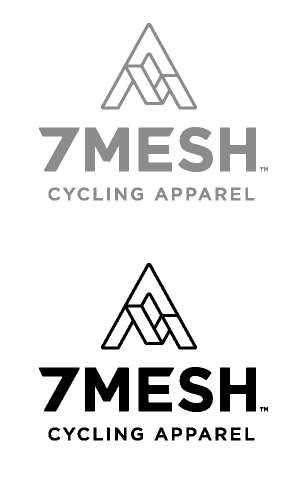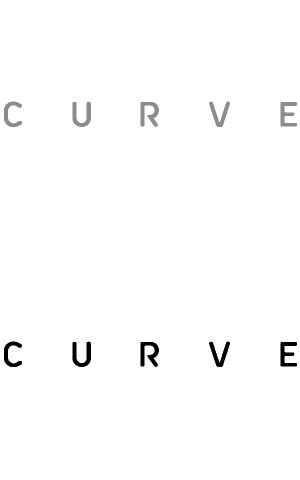The Police State Will Kill Travel: Lap One Around Morocco
In part one of this thrilling tale, Evan Christenson returns to Morocco’s High Atlas Mountains to finish a ride that left his bike broken and in the back of a taxi five years ago. This time, he tries to evade police and makes new friends along the way. While on the ride, he contemplates the point of travel and finds a way to give back. Find his story and a spectacular set of photos here…
PUBLISHED May 17, 2024
He limps with an eager gait as we push away the battered iron door and crouch under its bent frame. Chickens flutter from his feet, and the dust swirls in the feathers. Their wormy, withering shit squishes into my crooked and rusty cleats. I follow Mohammed into the darkness. I am new here, a foreigner, helpless, and willing to drift wherever I’m guided. I’m unsure of where we’re going, unsure of who he is, unsure of everything in this squiggle-letter world.
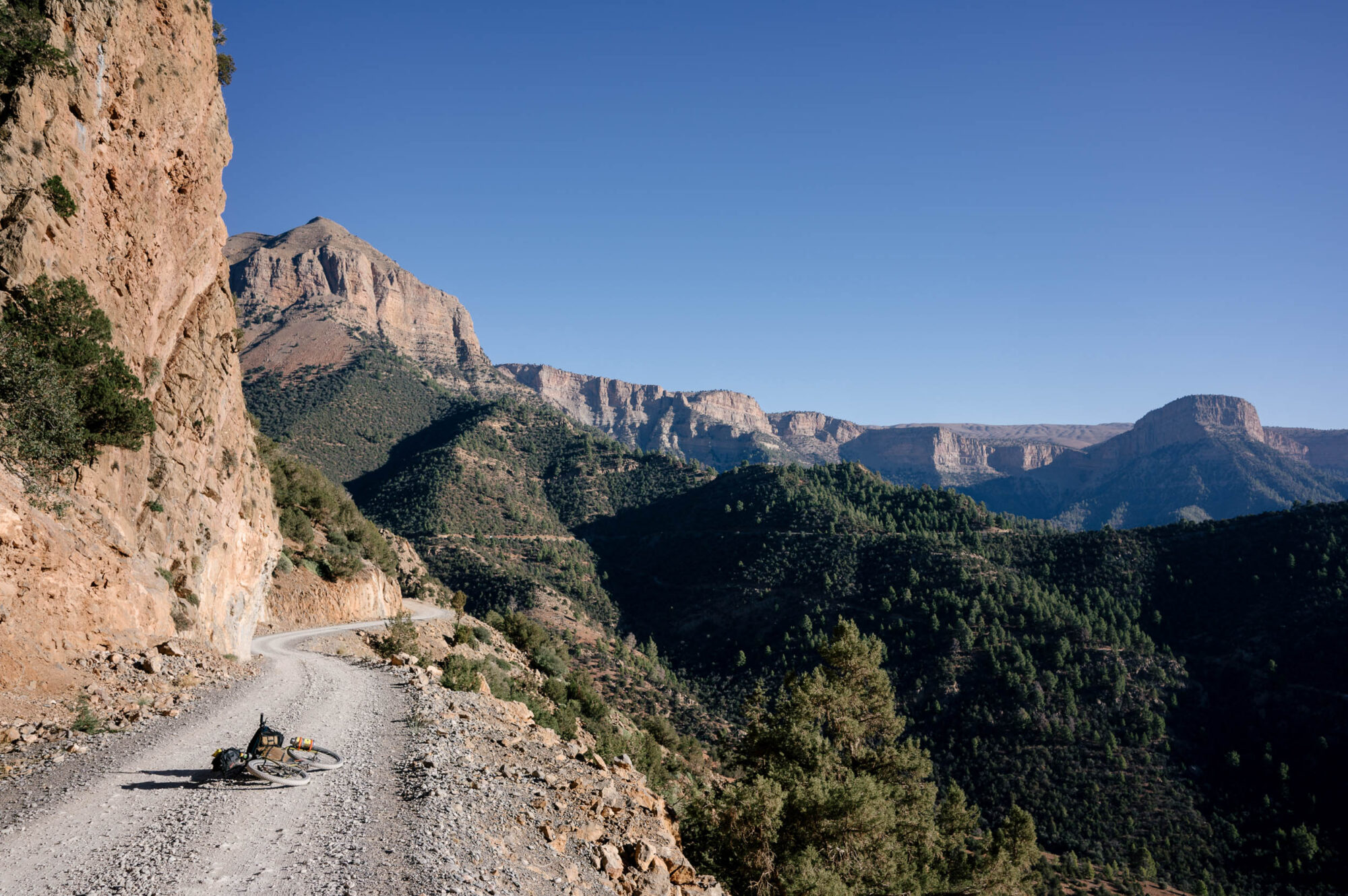
Mohammed makes a suckling motion, holding his nipple and craning his neck, before taking me to this mystery building—a lonely pile of rocks and mud—a donkey tied up and braying under the olive trees. I’d been riding for less than an hour into this new world when he invited me inside for tea. I was hoping to begin the push into the mountains that day. But I decided with his proposal that my new rule would be to always say yes to tea. Quickly, I’ll grow sick of it.
We bend under another door, and the strong North African sun filters through the soft North African dust. The room is cast orange; the mud walls, the dirt floor, the cut and splayed oil drum roof. The stale air weighs like the lid of a casket. More chickens shuffle from our feet and into the dark corners. Gas canisters, plastic water bottles, a cup of soup, and a pot of tea sit on a ledge. Not much else. Blankets and rugs and pillows are tangled in the center of this shrine to sustenance, to necessities, to sobriety. And there she is, lying just there, wrapped up in more blankets: a delicate cobbling of calloused and wrinkled skin and old clothes.
She groans as she sits up. Mohammed motions me closer to his mother. He counts 98 with his hands, and she eagerly offers me her hand to kiss and another glass of hot, syrupy tea. The three of us sit there, on cold plastic chairs, in a warm, dusty room, just an arm’s length away, staring and giggling and embracing our differences. It’s impossible not to acknowledge them. The light falls upon her face from the doorway and reflects off her two plummeting blue eyes staring back at me. Her wet smile flashes a mouth void of teeth. Her body struggles to move, but her eyes dart with energy. She talks with her son, fast, fluid and low. They seem to understand each other before the words come out—nodding in agreement, flashing glances, and waving hands. I stare at the scene before me, for it is not real. It is too foreign to understand. We are too different to be here together. I suppose that’s precisely why I’ve come.
“The Berber people do not like to be photographed,” I remember reading on some touristy blog before my first time in Morocco. I left my camera down most of the time on that trip, afraid to embrace the possibility of offense. But, now, on my second visit, her fragility in that moment was so strikingly beautiful and fleeting that I felt the need to photograph it. So, after another hot and syrupy tea with Fadmah, I stomach the question, and I brave the inevitable “no.”
Instead, Fadmah nods excitedly, takes out her headscarf, pats down her blanket, sits up, and crosses her arms. She uncrosses them. She giggles. She faces me for her photograph. I kneel in front of her, her son to my left, her squared on the ledge in front, and I put the black metal camera between us. I turn the right dial down to expose for her face, and it comes alive in the tiny electronic screen squished against my right eye. I press the smooth black button, the shutter falls, and the great glass barrier is shattered between us. My heart flutters, and my stomach plummets.
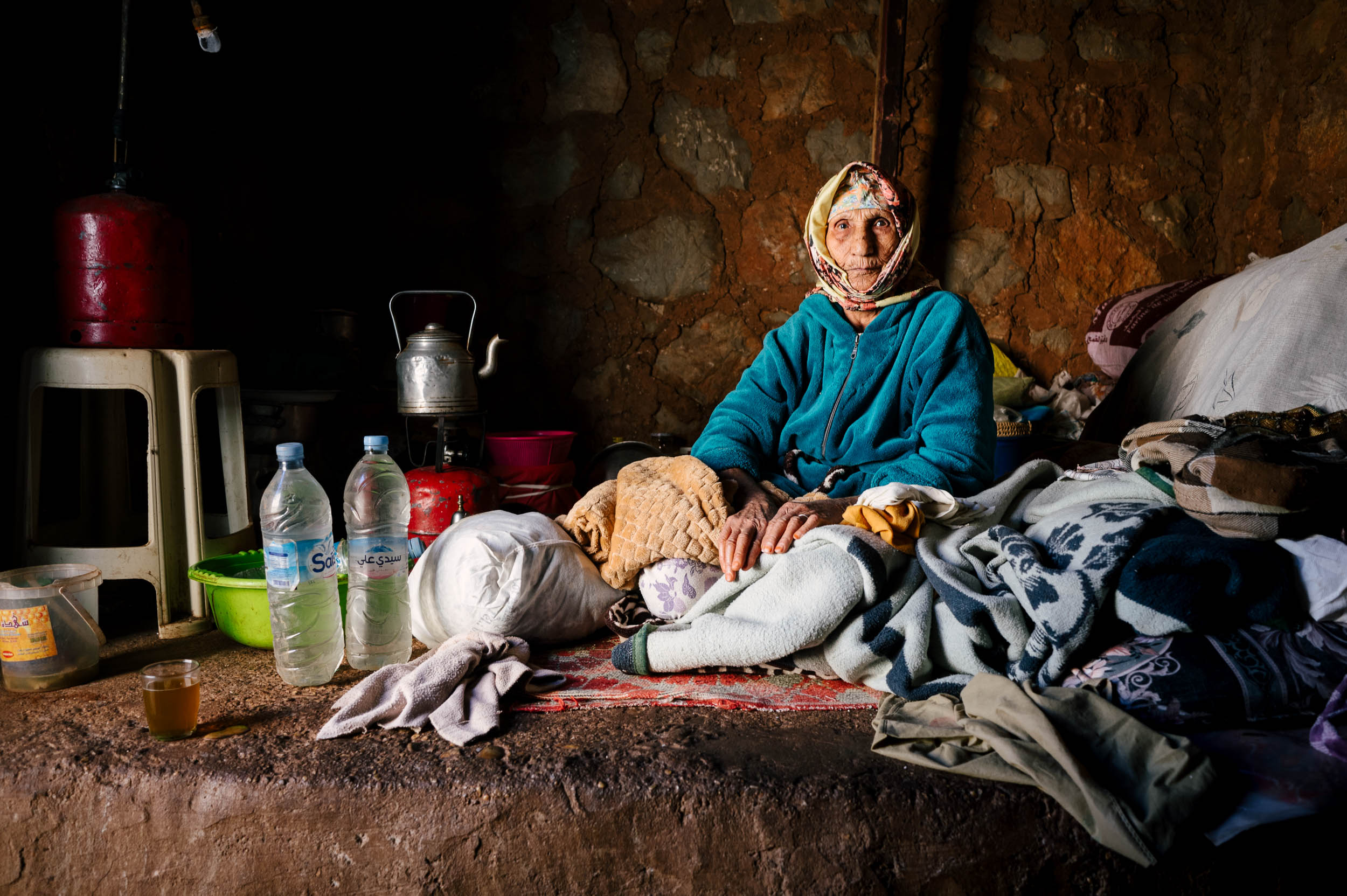
Something has changed. This no longer feels right. Photographing people is one of my favorite things to do. Lately, however, I’ve been struggling more and more with the ethics of the whole enterprise. These dynamics feel murky at best and colonial and objectifying at worst. I shoot my photos, shake Fadmah’s hand, kiss it, say thank you, and wave goodbye. I get back on my bicycle, and I ride back down the road and off into the mountains. The small mud house with the olive trees and the donkey gets smaller. A new one appears up the road. And my mind begins to race.
What am I doing here? Who am I to steal from this poor old woman? Why, when I cross paths with her complex and beautiful life, at the very tender end of it—not understanding anything about her, about what she has done and what she believes, where she has gone, and what she has overcome—do I feel entitled to take this moment? And most importantly, to leave with it, keeping it for myself, for my hard drive, and for my “followers?” What about her?
I ride on and play football with some kids. I kick rocks off the cliff. I talk with a guy on a motorcycle about immigration. He tells me it costs $5,000 to get smuggled into Europe. He’s trying to raise the money now. For short spurts, kids join me and we do wheelies before they inevitably get tired and turn around. I ride further alone, and I slowly climb higher and higher back into the Atlas, back down this familiar road, shocked at how little I remember, shocked by how different it all feels.
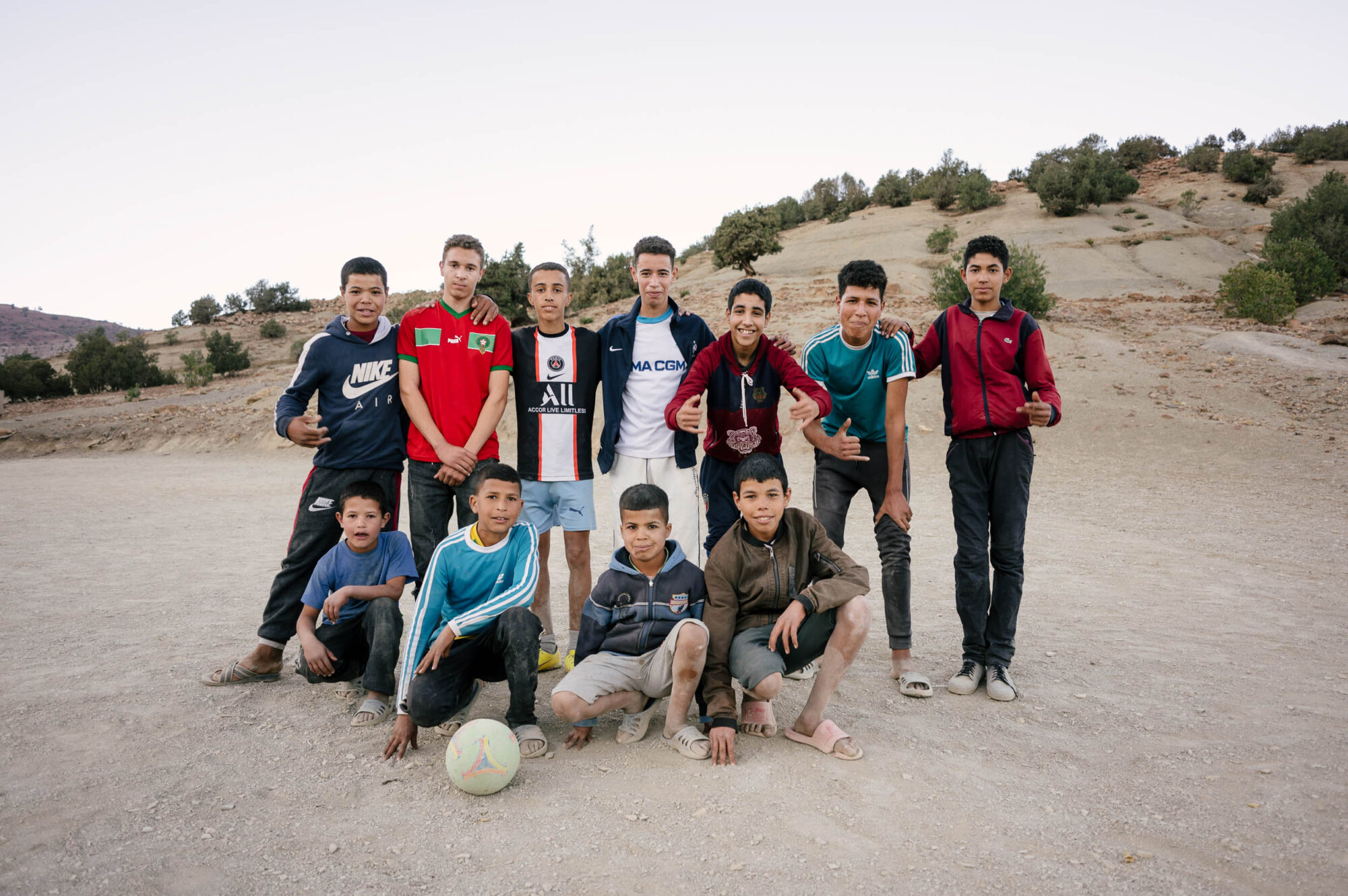
As the mountains yearn for the clouds and the afternoon sun begins to yellow, I come across a man lying on the ground. He’s selling apples on the roadside with a broken brass scale and a tattered piece of cardboard blocking the sun. The skin of his face is wrinkled and battered, and the web of creases spiderwebbing from his eyes to his lips dances as he laughs. His body is long and straight, and his ears stick up like satellites. He lies in the dirt with his yellow headscarf and dusty brown tunic and stares up at me. He gives me some apples, and we eat them together. He then brings me across the street and into his home for tea, and that same deep urge to photograph this strange and beautiful human has returned.
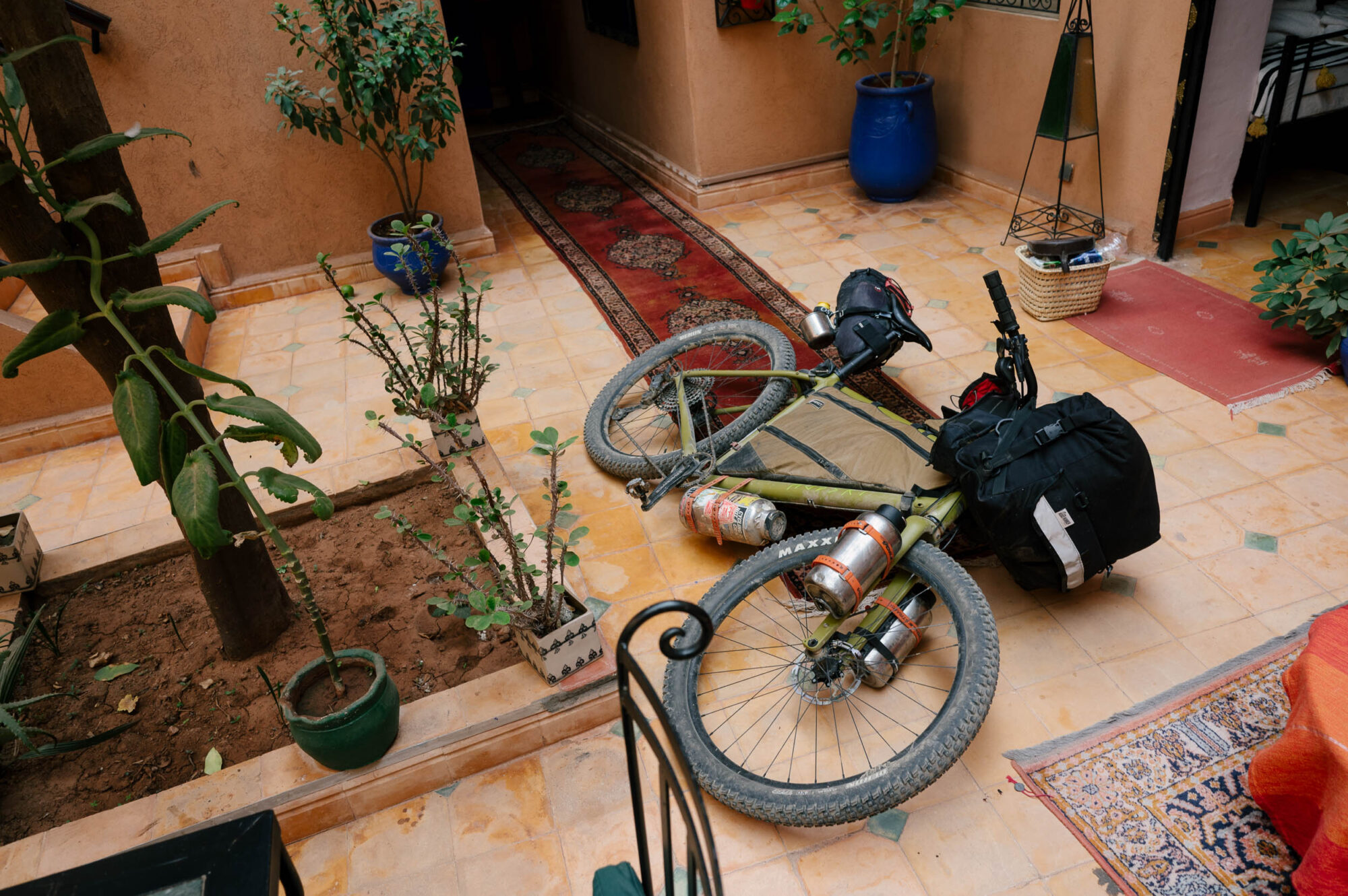
There was a certain disappointment I clung to when I left these mountains five years ago. Five years ago, I pedaled up this same road as fast as I could, trying to catch a flight to get home and back to class. I naively flew from Los Angeles to Morocco for spring break because I had no concept of sustainability or personal accountability and even less knowledge of the people and the places I was going to see. I went to Morocco back then because it seemed like an exotic and exciting challenge, and that’s what I cared about for a long time.
“Could I ride from Lisbon to Marrakech?” I asked myself. But of course I could. A bit of fitness and a credit card made that ride pretty easy. In the greater context of life, pedaling circles is rather simple for many of us. I rode 200 kilometers a day because I was still a bike racer, and I thought riding a bike meant entirely that: riding the bicycle as much and as fast as possible. I rode all day because I didn’t realize you could play soccer with the kids on the roadside, go into a home for tea, help an old lady carry a bundle of hay, or walk through a market and just talk to people. The roadside didn’t occur to me. It was simply a mirage, a two-dimensional world I had no agency to interact with. I was a cyclist. I came here to cycle.
But the underlying truth was that I was scared. I was scared of the country, with its smoking cars and burning trash and the squiggly letters and the weird churches that sang Allahu Akbar at 6 a.m. According to television, the Arab world was the enemy. I was a suburban kid, and I hadn’t yet learned that there was always more to a story than what’s portrayed on TV. Riding fast was a way to insulate myself from the seemingly dangerous world on the roadside and in the hills. Riding fast was my security. I booked an Airbnb from my Airbnb in the morning and rode until I got there in the evening. Sure, it was exciting. For a while, it even made for a half-decent story. But it missed the whole point. I should’ve just ridden to Vegas.
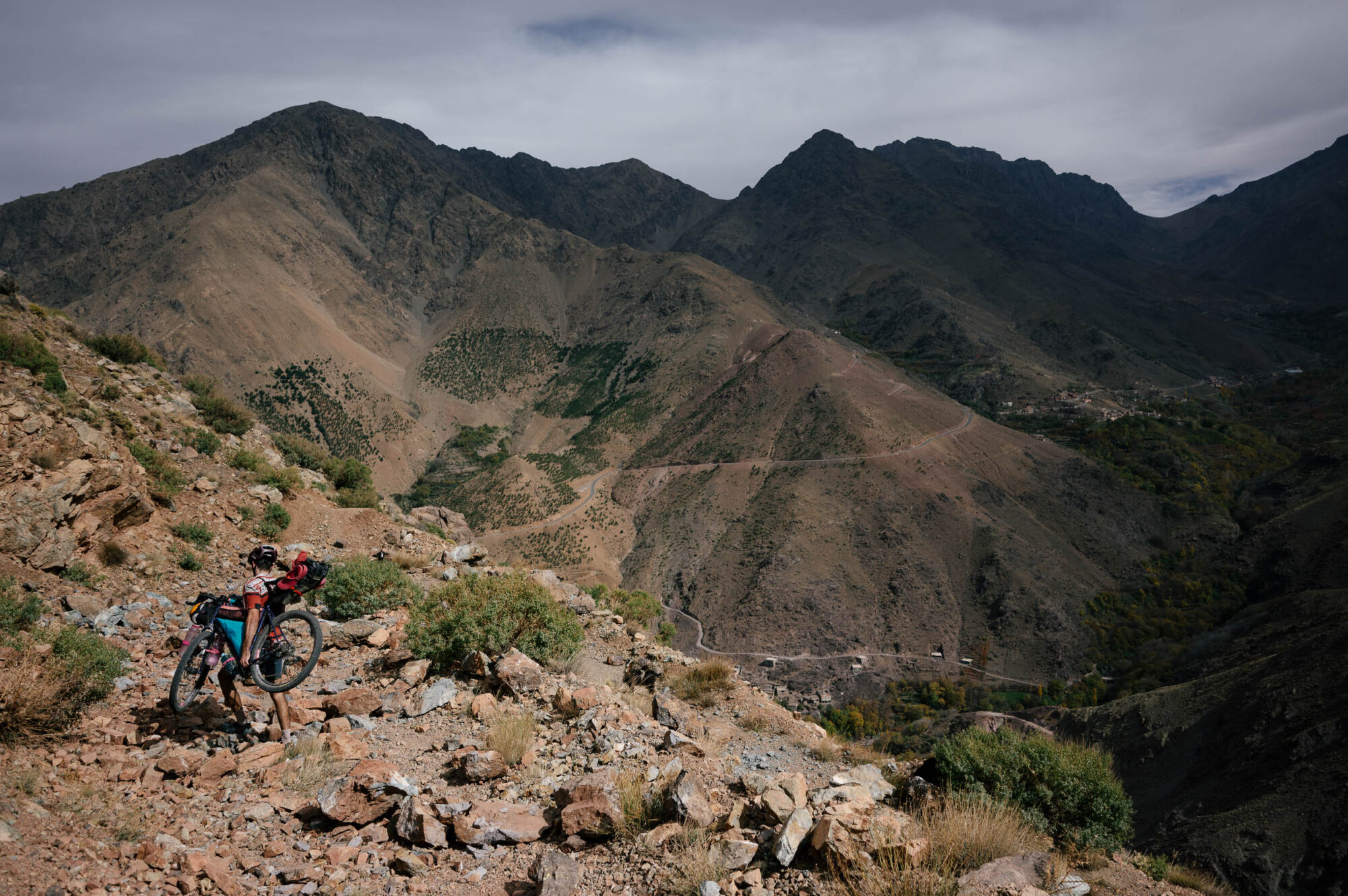
So, I’ve come back five years later—after enough travel to dull that plaguing fear—to try to finish the ride I couldn’t finish the first time. I double-flatted on this road into the Atlas, and I coincidentally didn’t have the tools to fix it at the time, so I called a taxi and got a ride out. And I thought that returning here with some tougher tires, a tool kit, a tent, and a stove would make for a great story. Look at me, conquering the land that once beat me. I did it! But that nagging thought stayed rumbling in my mind as I drank tea in the man’s home and as he poured another and another.
What am I really doing there? I yearned to photograph his weathered face. Those wrinkles alone told a beautiful story. His warm smile, his firm handshake, hup-huppy laugh, and staccato wordplay fascinated me. And mostly, I just wanted to understand him a bit more. I wanted to do something more than just pedal circles and kick rocks. I looked at his bare, mud walls, at his grandchildren playing in the trees, and at his daughter bending over the fire. I listened to their goats treading on the rocks and feeding from the trees and the motorcycles funneling down the canyon road. I set down my glass and said, “I’ll be back.” And I got back on my bike, turned around, and rode back down the way I came.
Satellite dishes and smartphones and heavy machinery. The King and migration and TikTok. With the earthquake and COVID, climate change and ingressing technology, these mountains have already noticeably changed in the short time since I was last here. This road into the mountains was almost all dirt five years ago, and now, it’s almost all paved. Morocco has been going through a six-month drought. Olive oil prices have tripled. The reservoir I previously saw full is now nearly empty. Of course, there are a dozen new golf resorts in the valley. And technology has permeated and will continue to permeate and disrupt life here in the mountains. The youth will move to the big cities, and these newly paved roads will lead to more mixing of culture, people, and goods—for better and worse.
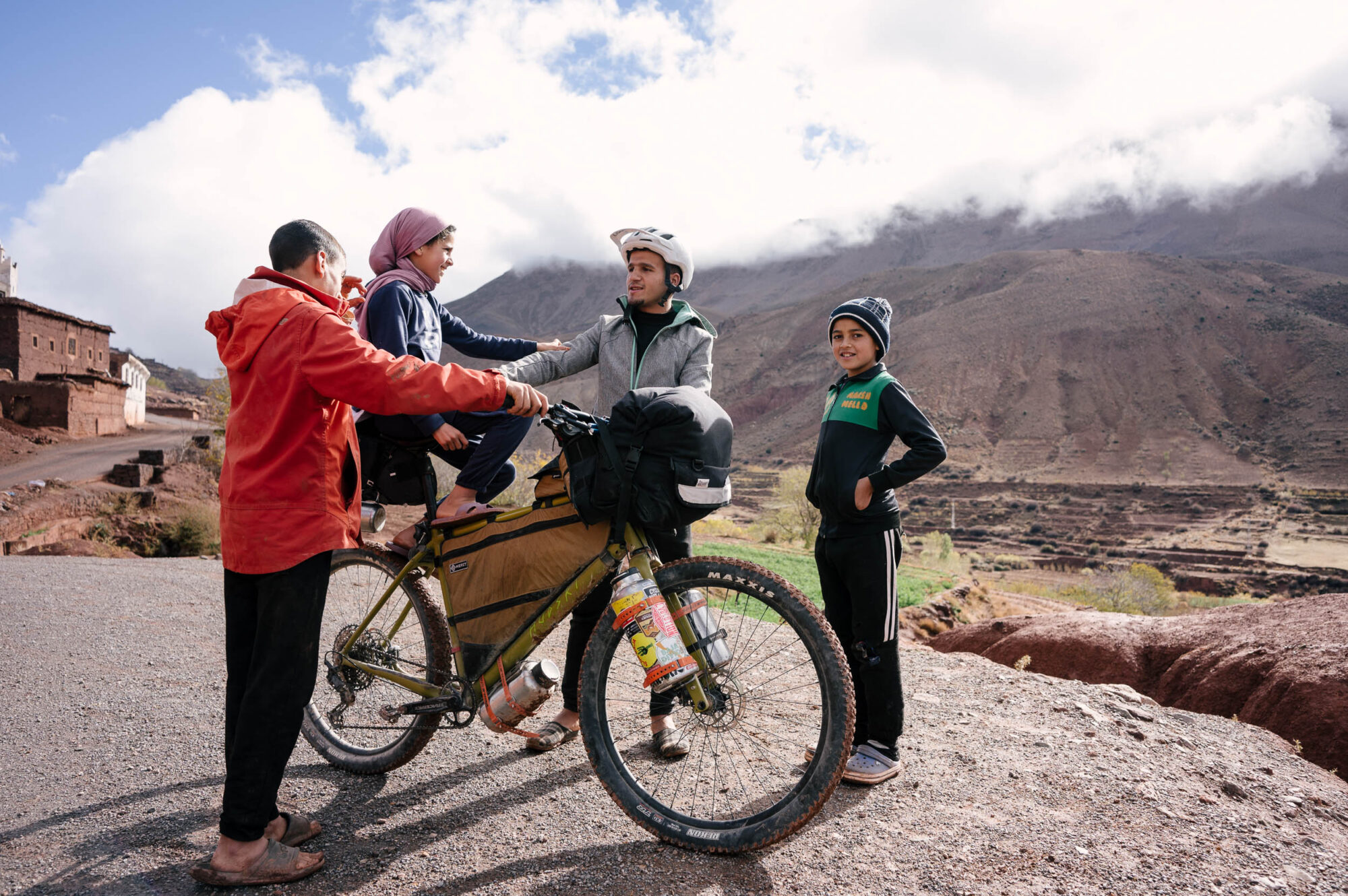
I thought of this rapidly changing world and the strong, gentle, and beautiful people I’d met. I thought of their families and their communities and of all their impermanence. I thought of the photos I carry in my wallet to remind me of home. The Polaroid of my sister and my mother’s high school portrait, creased and bleached from the long years I’ve leaned on them. I thought of that photo of Fadmah, of the pride in her son Mohamed when we pushed into her dark room, and I thought how they should have that photo. How this one nice picture to me, in fact, means a lot more to them. And the man I was having tea with, who was also in his 90s, I thought his family should have a nice photo of him too. Because a photograph says, “I was here. I looked like this. This was my life.” A photograph is a pin nailed into the blowing sands of life. And I think that with this world accelerating in so many new directions, faster and faster still, this simple statement is an increasingly important one to make.
So I rode back to the city, and I had those photos printed. I found a translator and had several phrases translated into Tamazight to explain my idea. I’ll ride this loop and photograph the people that want to be photographed. Families and children and homes. Whoever shows me love on my ride. Whoever destiny crosses into my path. And then I’ll ride the loop again, and I’ll give them back their photos—for their families, for themselves, for the sake of time and the preservation of history, and maybe partly for my own guilt, too.
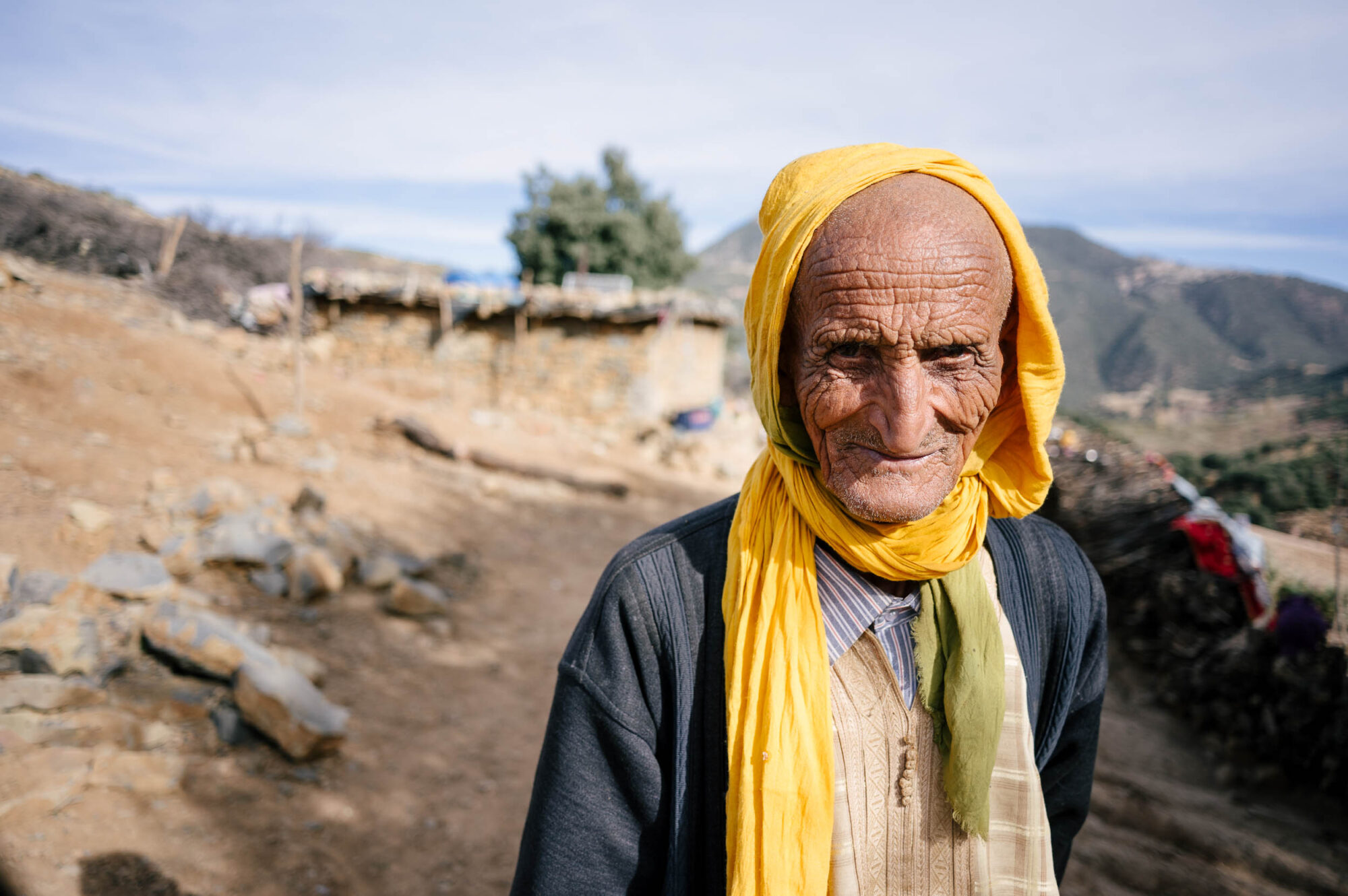
I ride back into the mountain, and I see Mohammed. He didn’t expect to see me again, and he stops washing his dishes, towels off his hands, and he gives me a hug. I’m nervous and excited, and I flounder in my framebag and pull out the print of his mother sitting upright in her fragility, staring straight into my camera, this metal box of witness. He takes it gently, and he holds it, and he goes quiet. His deep blue eyes well up with tears, both crying and smiling while holding this moment. And I bring another photo to Fadmah, the other one, the one of her and her son holding each other, and her small, fragile body lets out a piercing shriek, and she kisses my hands, and she kisses the photo, and she kisses my hands again.
Mohamed pins it to his wall. There is nothing else there, so alone it sits in the center. We sit down to make breakfast together, and while I chop the vegetables, I catch him staring up at the photo, looking quietly with that same pride I remembered from the day prior. I feel meager about this project when I turn around and set out. After all, it’s just a photograph. A photograph doesn’t cure disease or put food on the table. It doesn’t create jobs or bring rain. But after this first photo trial run, after Mohammed’s tears and Fadmah’s kisses, I feel more than meager. I feel excited. I push off and head back to the High Atlas with my spirits high and my pocket full of phrases. I set off excited to shoot photos. But I also set off unsure if anyone else will actually want them.
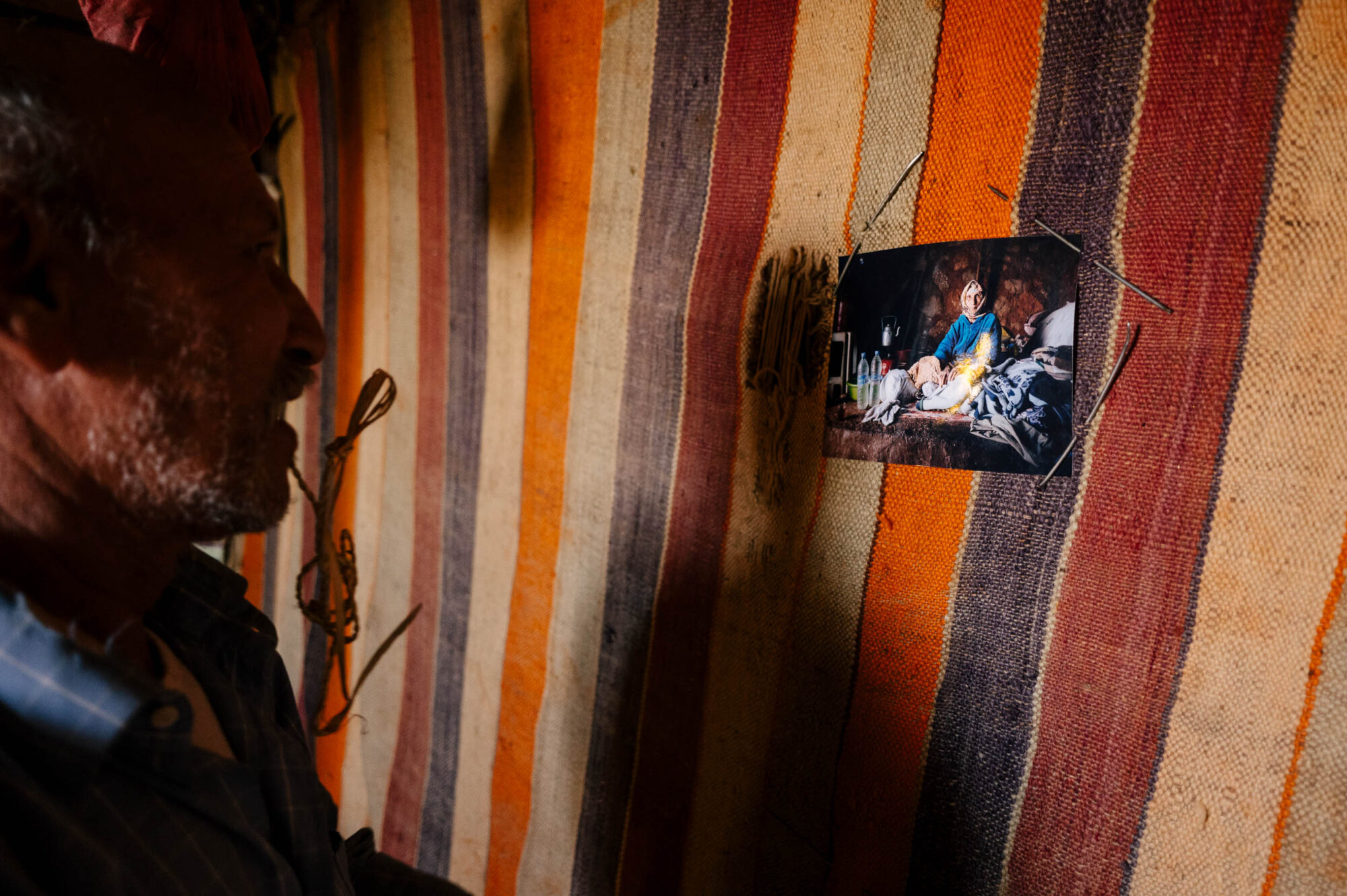
I ride on and learn a lot on this first loop. I learn you are not supposed to eat with your left hand. You should eat dates in numbers of three, five, or seven. Men knock on doors twice. Women knock three times. Rafisa is eaten on new years, but people don’t really celebrate it. There are just three big parties in everyone’s life: birth, marriage, and death. I learn that dinosaurs used to roam here and that they’ve dug up entire skeletons fossilized in these mountains. These mountains all used to be under water, and quite often you can find fossils of little sea crabs in the shale. I learn how to weave carpets, make olive oil, and crack the nuts of the oak trees and eat their bitter insides.
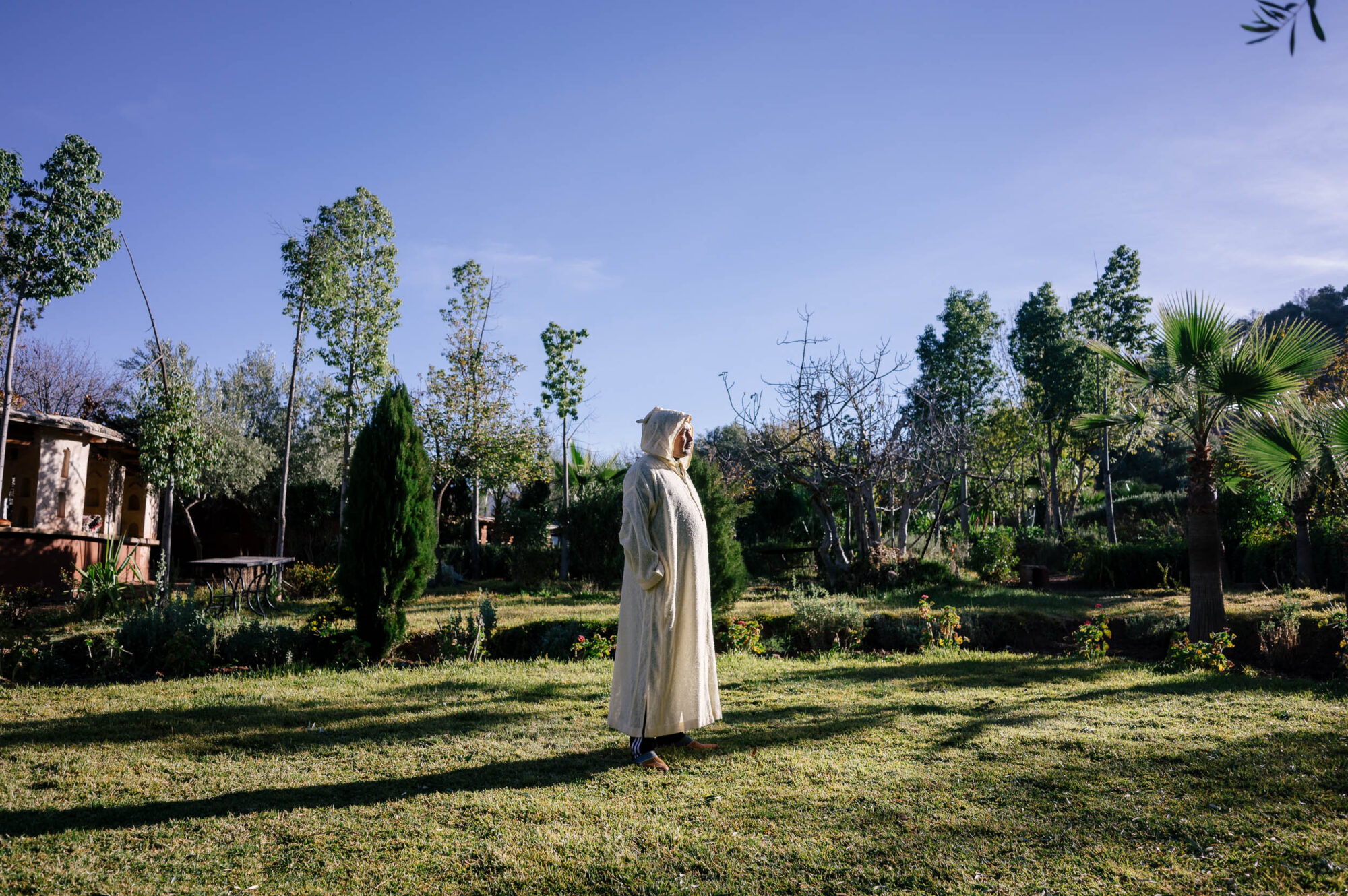
Fridays are the holy day, and you should go to the mosque, pray, take your rest, eat couscous with whoever shows up, and then go to the cafe. Don’t really talk religion, though. Football is holy. And to many Moroccans, Hakimi is the pope. The further north you go, the more they like Barcelona instead of Real Madrid, but it must always be asked. The djlaba can be worn both formally and informally, but it means you must ride the donkey side-saddle. French is dying, and the youth are learning English. Less colonial. Better memes. I tell one 10-year-old kid I live in California, and he replies, “Isn’t that where all the crackheads live?” I didn’t see that one coming.
I learn Derijah, I learn Teshelhit. I learn a Moroccan hammam is not a gentle enterprise, and in fact, it really hurts when the old men in their wet boxers scrape your skin raw with a fist of olive oil sap and a glove of hard bristles. I also learn you should always kiss the old ladies’ hands first. You shake a younger woman’s hand and then kiss your own hand. With men, you shake hands and pat your chest. The introduction is a very important part of Amazigh culture. You must always ask:
“How are you?”
“Good. How are you?”
“Good.”
“Thanks be to Allah.”
“Thanks be to Allah.”
After saying all this in Teshelhit, I’m immediately welcomed into homes. “You speak Berber!” a lot of people shout. They’re surprised to see a foreigner spend the time to learn a bit of their language, and I’m just as surprised as them that this is a radical idea. Now, here, so far away, alone in someone else’s world, it feels like the least I can do. Why come so far if we’re not going to at least pay attention to one another?
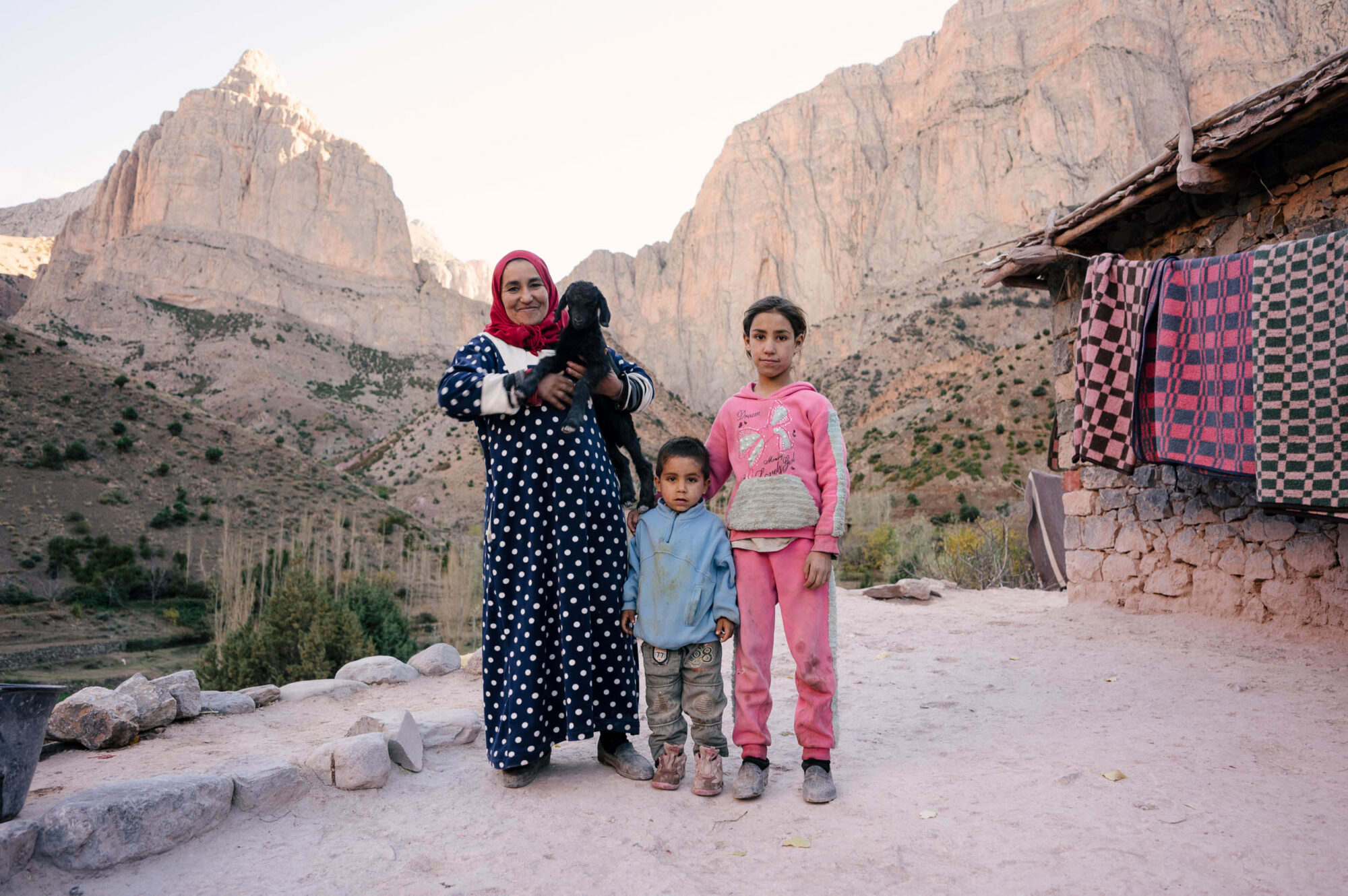
In the mountains, I’m brought into dozens of homes. Quickly, I’m surprised by how excited people are to be photographed. Some homes I can’t get out of without shooting 10 or 20 photos. “Me! Me! Me!” the kids shout. Facebook friends and selfies and WhatsApp numbers. Moms want photos with their children. Children want photos of themselves, looking serious, looking cool. Quickly, I become a family portrait photographer on a bicycle, but I suppose that’s what I set out for.
I think back to that piece of internet travel blog advice a lot after this project begins to take off. How “the Berber people don’t like to be photographed.” But I quickly see how wrong that was. First, you’re not supposed to use the word Berber, as it’s derived from the word Barbarian. The actual word is Amazigh. Second, it treats the 10 million Indigenous people here as a unit, not acknowledging someone’s agency and unique perspective of their own right to be or not to be photographed. And finally, of course someone doesn’t want a random stranger running up and snapping a picture and running away with it. Who would?
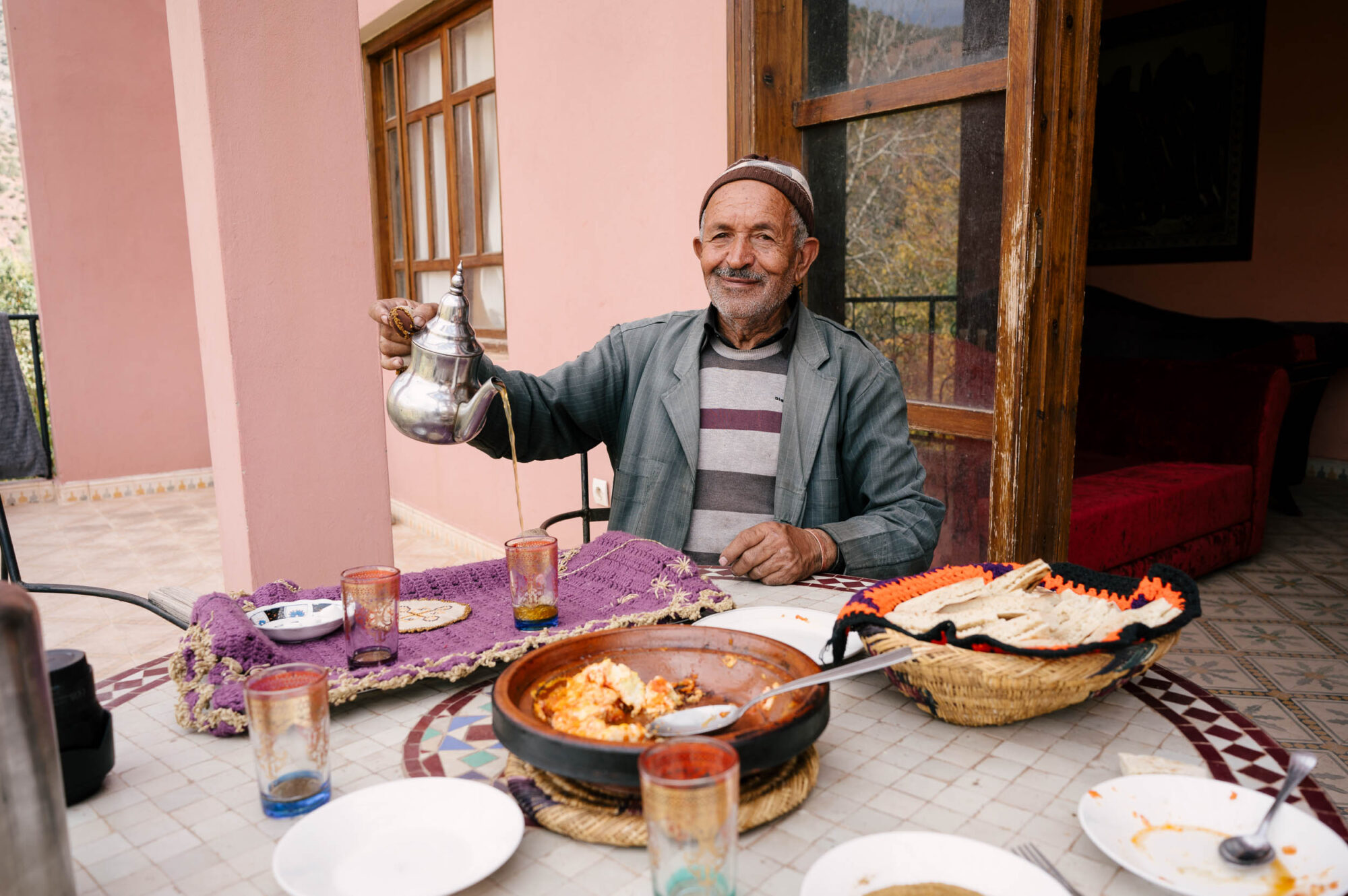
About two weeks into my loop, everything is going great. I’ve already got 30 photos to give out, I’ve scored 12 goals in five roadside soccer games and gone in for tea a dozen or so times. I have a string of WhatsApp conversations in Arabic that I can’t understand, and at least 50 kids have tried (and failed) to ride my bike. Then, I meet a man on a motorcycle. He asks the usual. Where are you going? Where are you from? How much did your bicycle cost? Want to trade?? He-he-he. And for a whole day, we leapfrog on the one small dirt road through the canyon. He takes great care to know where I’m sleeping that night.
And then, the next day, I run into him again, and he asks the same questions. And the next day he shows up when I’m playing soccer with some kids. “Why are you playing with these kids? They’re in poverty,” he says. He waits for me to finish my game and rides with me further down the road. Two boys join me on their bikes, and we all ride together. We crest the hill and see black storm clouds rolling in. The wind picks up, the temperature drops, and snow begins to fall—a brilliant white atop the harsh ridges of the thirsty red clay. The boys invite me to their home to wait out the storm. And the man on the motorcycle says no. “But I don’t know them!” he says. It’s become obvious that the man is from the police, following me and radioing in my progress. But he won’t admit it. I stay with the family anyways and we play football in the snow. Finally, the first snowfall of the year. It feels like a special occasion to be present for.
The police intensify. I’m followed by various people in unmarked cars, people who won’t always say they’re police, people wearing hoods and talking on their phones. One night, I get pulled out of my campsite and told I have to ride to a hotel, in the dark, over an hour away. I’m followed by men I don’t know. I’m called by my name and told where I can and can’t go. I begin to get paranoid, and I duck into drainages to evade the tails, and I see everyone who stares at me differently. I begin constantly wondering who is police and who is not.
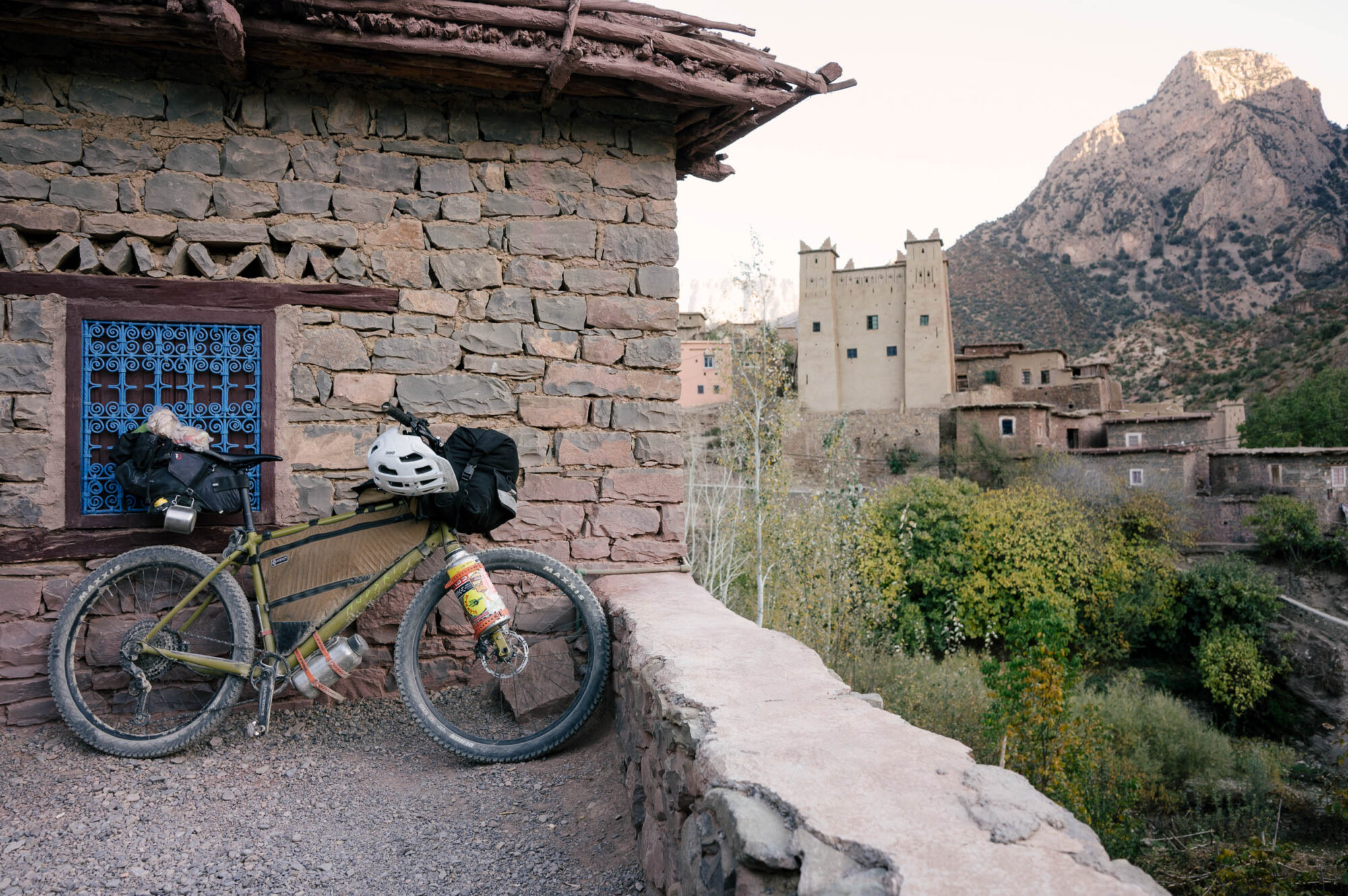
I stop for tea with a family, and the police check them out first. In a market, other police question me and the stranger I’m talking to in front of everyone. I grow frustrated with them. I yell at them. “Leave me alone!” I beg. They tell me it’s for my safety. They continue to repeat this, over and over, as if Morocco isn’t a safe country to be in. As if the two weeks before they started following me, I hadn’t been treated kindly at every interaction.
I was so angry with the police. I wanted to ride slowly, to immerse myself into these mountains, into these homes, to learn this place and try to make real connections. But as soon as the police started following me, I felt ostracized. Because having a police officer constantly looking over my shoulder tells anyone on the roadside to be careful. The police here can be corrupt, and many people fear them. And now I was put on the other team and made an outcast. The police guide me out of people’s homes, out of soccer games with the kids, and out of campsites in the mountains. They guide me toward the hotels and to the tourist traps.
The police want me to take my selfies, buy my trinkets, sleep in nice hotels, and get on my flight back home. They want the four out of five stars experience because tourism is good for the economy, and bad reviews are bad for the bottom line. But real travel is contradictory to tourism. It doesn’t make money for those shitty trinket shops, big hotels, snake charmers and dancing monkeys. And to really travel is to accept risk. It is built on trust, going blindly and willingly into a stranger’s home, holding their crying children, sleeping on their worn carpets, and eating with our hands from the same clay tagine. Trust and travel are the antidote to media. When the world feels overwhelmingly awful, it’s in a stranger’s home that it begins to feel whole again. Trust is something you can’t commodify. It is not a shiny thing to advertise. It doesn’t have reviews on TripAdvisor. Real travel is something you can’t simply buy. You must search it out slowly. Tourism will kill travel. Instagram will kill travel. This police state will kill travel.
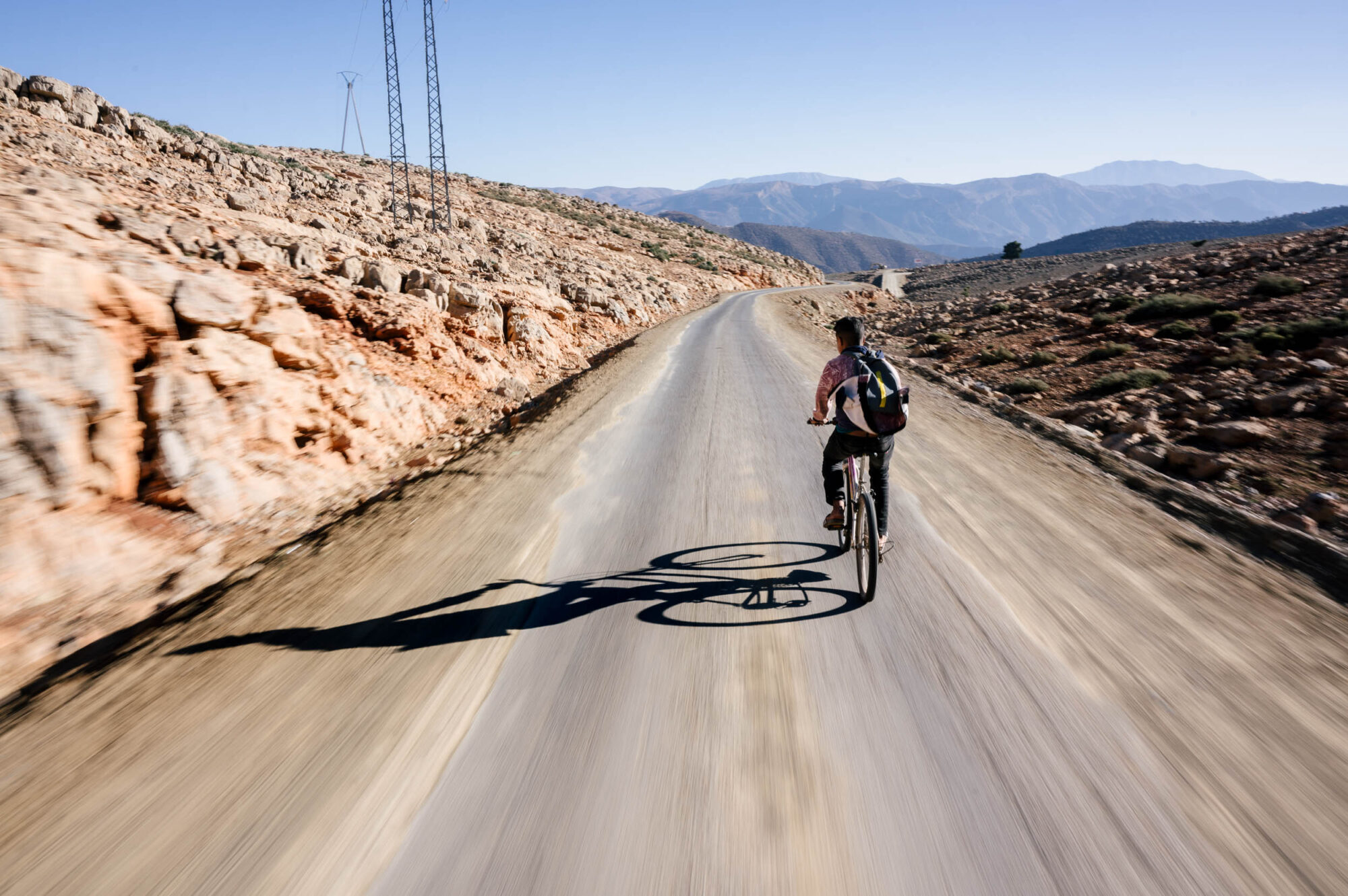
I finish my loop frustrated and sick. I wear a Moroccan coat over my head and hitchhike through the flatlands so the police can’t tail me to my friend’s house, and I begin days of puking as I roll back into his garage. My first two weeks on the road were heaven. I made real friends, shot beautiful photos, and learned real lessons. I felt like I was coming back to this special mountain range and finally doing it right. I felt alive and full. But the police issue put all that in the dark. I was too frustrated to appreciate the landscapes I was pedaling through. Too uncomfortable by my tail to make friends. Too suspicious to even want to.
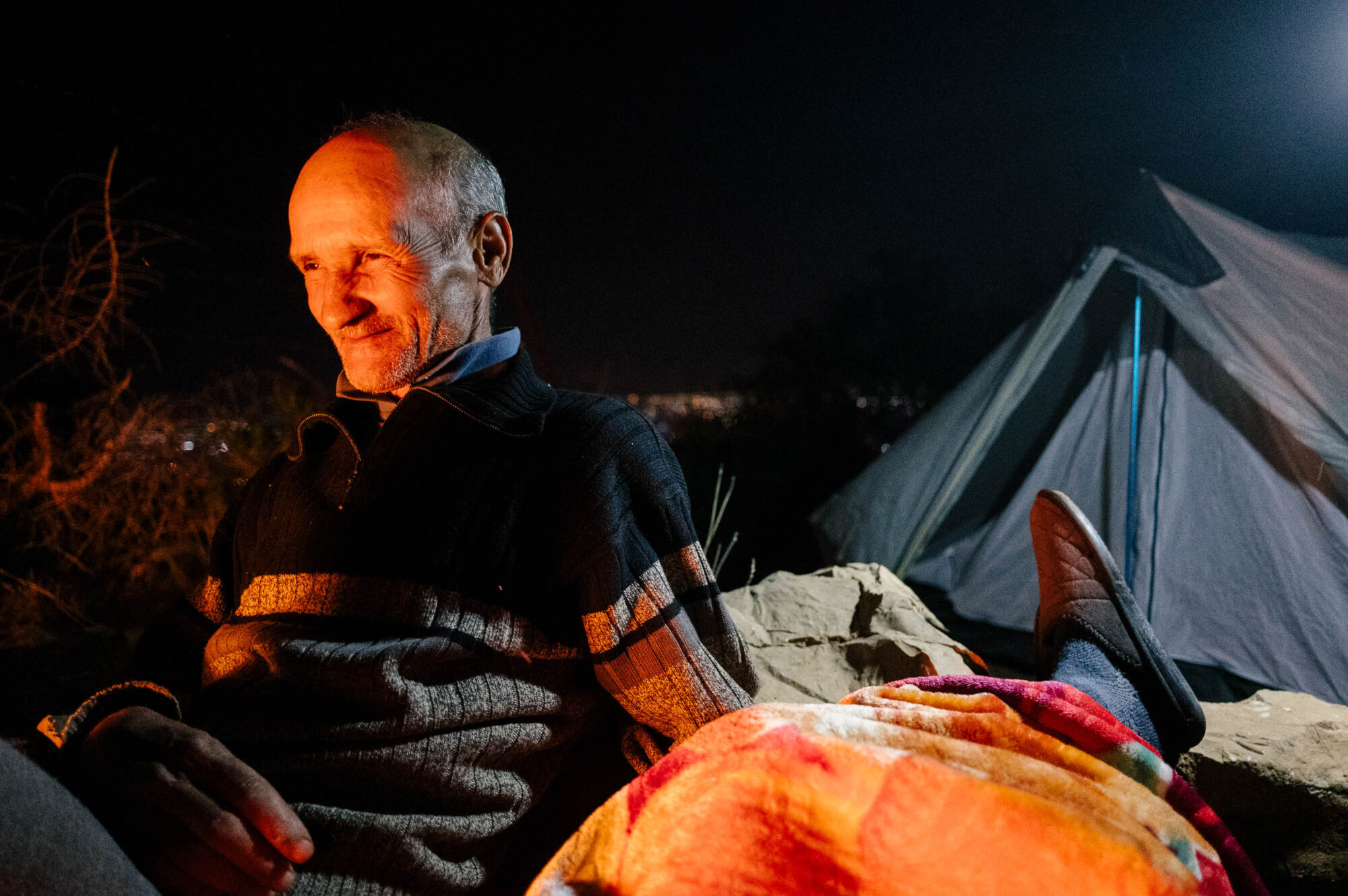
And so I get back to the city, and I go to meet the police captain. I explain why this is absurd, why it freaks me out, and why it’s unnecessary. And the captain, young, fit, smiley, and joking, he says he totally understands me. He says it won’t happen again. He apologizes. He offers me tea. I’m shocked. After a week of asking a dozen officers to leave me alone, and them all denying it, saying over and over how it’s their orders and it’s “for my safety,” finally, the captain agrees to let me do my own thing. “Oh yeah, I completely understand you.” he says. And just like that, my project has wings again.
I return to the photo lab in town with a flash drive, and half an hour later the man behind the counter very calmly gives me my stack of photos. There are 46 in total. More than I expected to get, actually. And as I flip through them, I see that whole loop reconnect, one photo at a time. My eyes begin to tear up. Lahcen, Hamza, Mina, Toma. The kasbah, the café, the roadside, the homes. The same loop I rode in just two days the last time I was here, I now spent three weeks on. But those three weeks hold a significant weight in my hands now, each meaningful interaction forever stamped in paper.
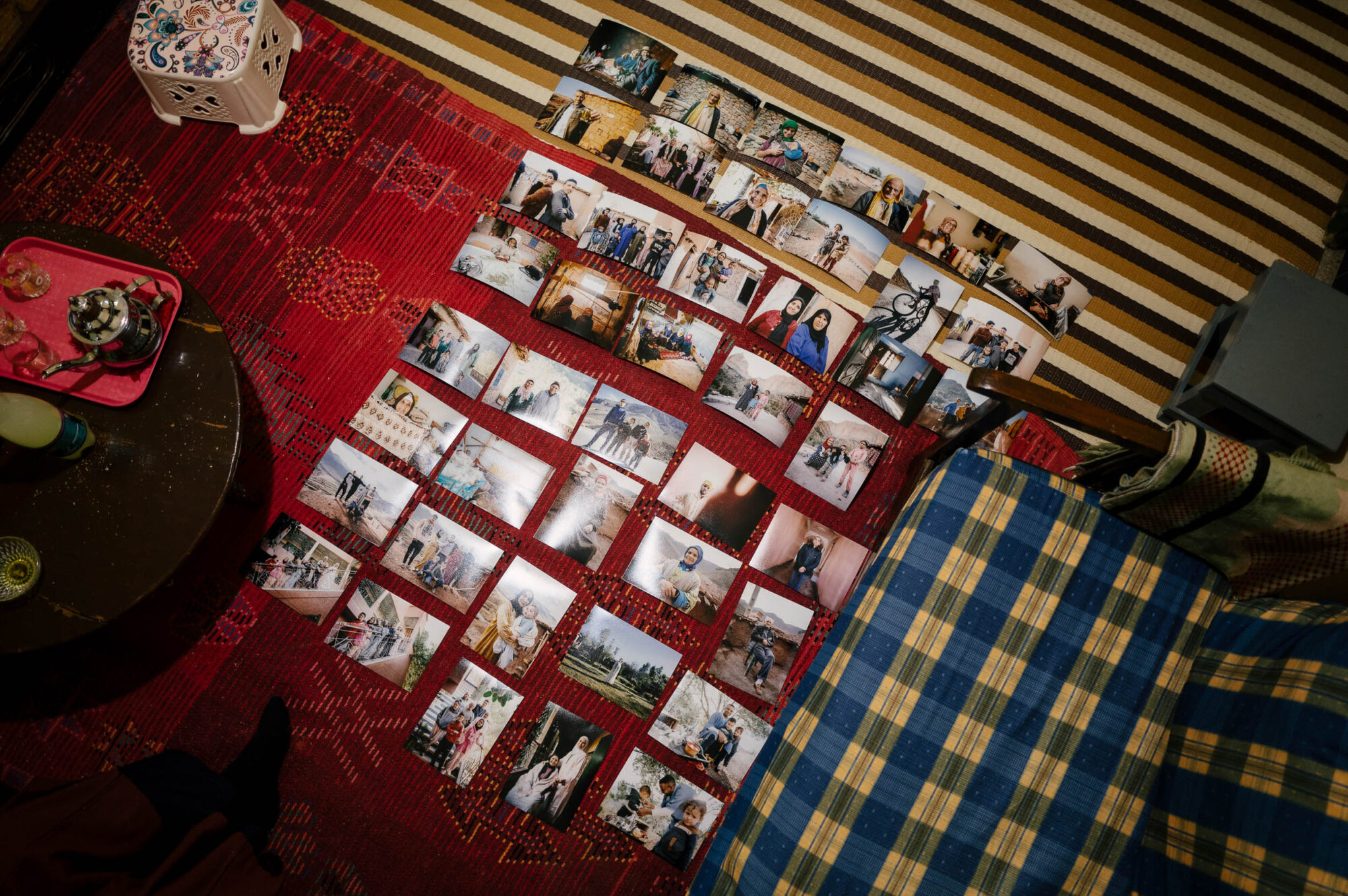
In those three weeks, I built real relationships, I made friends, and I listened to stories. Every photo I hold in my hands means something to me and, hopefully, to the person on the other side of the lens when I return. This stack of photographs is the difference between going fast and going slow. And to me, it’s the difference in this trip being worth going to the other side of the world for.
I go back to my friend’s house to spend another night, still waiting for the food poisoning to settle down. Each night, the whole family sits around the plastic box set TV and watches Al Jazeera. Afterward, the father Zaid and I sit alone and drink tea late into the night. Tonight, he tells me his life story of being the child of an olive farmer up in the mountains, wanting to be a doctor, leaving home and moving to the city to study, and accepting life when he was offered a job as a primary school teacher. He taught French for 30 years in Beni-Mellal, where we sit now, and although it wasn’t his dream, he loved his work. The news crackles in the background. The geese in the garden call out. He pours us another glass of tea, high and arcing, the steam rising and the bubbles bursting as the sweet mint amber splatters on the plastic tablecloth.

Family is a big part of Moroccan culture. Regularly, I see homes with four generations all living together. Family is organized in the Koran and highly valued in Islam. And Zaid, after leaving the mountains and giving up his dream, has built a beautiful family. His daughters are both in university. His oldest son is going off for a PhD program in France. His youngest son is healthy and kind. They open their home and let me be a part of their family for a week. And that night—another night in the yellow salon with Al Jazeera in the background—I give Zaid the photos I made of his family. He looks at them, thumbing the edges, staring at the faces he’s become so familiar with, and he grows quiet. I look over and see small tears pooling in the corners of his eyes. We sit together with the coverage of the war mumbling in the background. Zaid looks down and he says thank you.
Yes, I felt meager about this project when it first began. But so far, I’m batting 100 percent in making men cry, even in a machismo culture espousing strength and dignity. And that alone feels worth coming here for. Travel is all about meeting people, trusting them, and changing our perspectives. But maybe it can be about changing someone else’s, too.
The police are gone now. Winter is coming to the High Atlas. I have a framebag full of photos to go give out, and so I’ll go finish this route once more. But this time, the right way. I started this ride by asking myself what I’m doing here, and although I’m still not sure, I can tell I’m getting closer.
Further Reading
Make sure to dig into these related articles for more info...
Please keep the conversation civil, constructive, and inclusive, or your comment will be removed.


